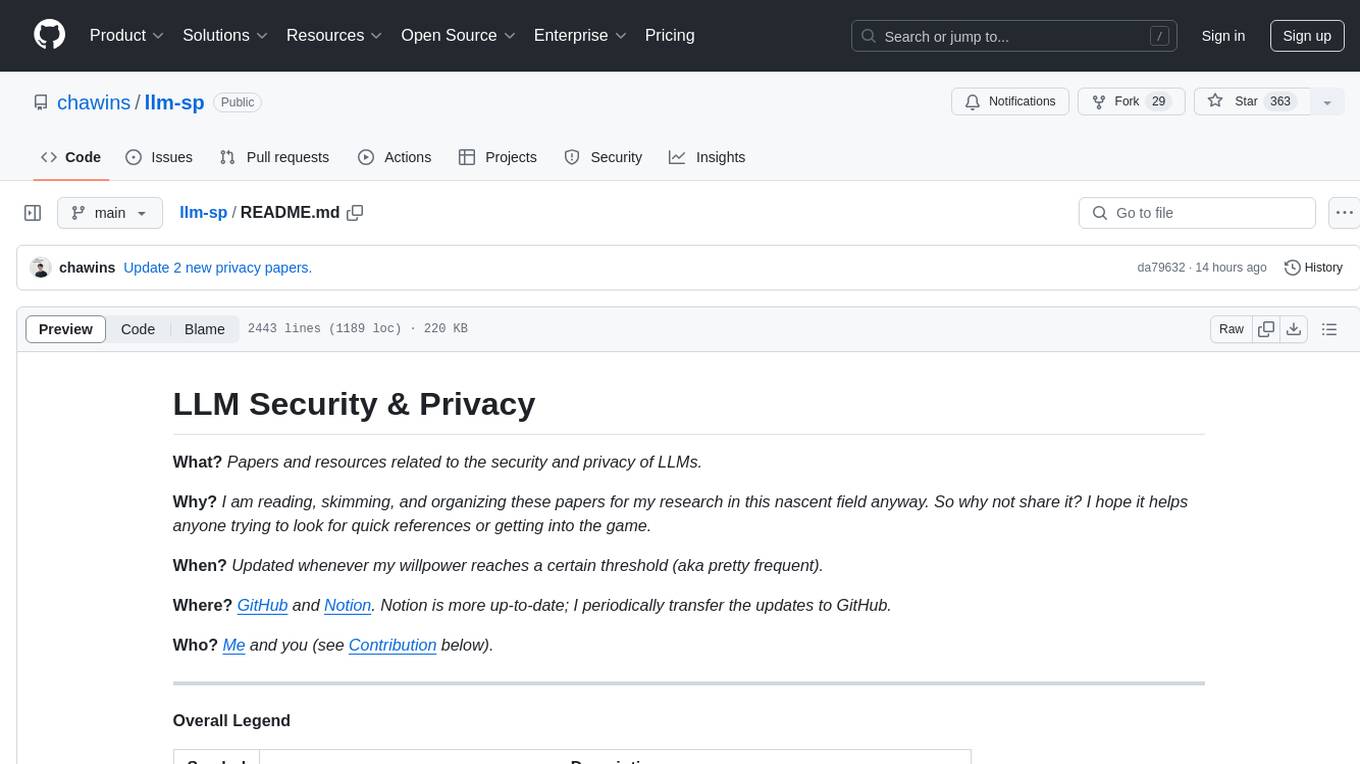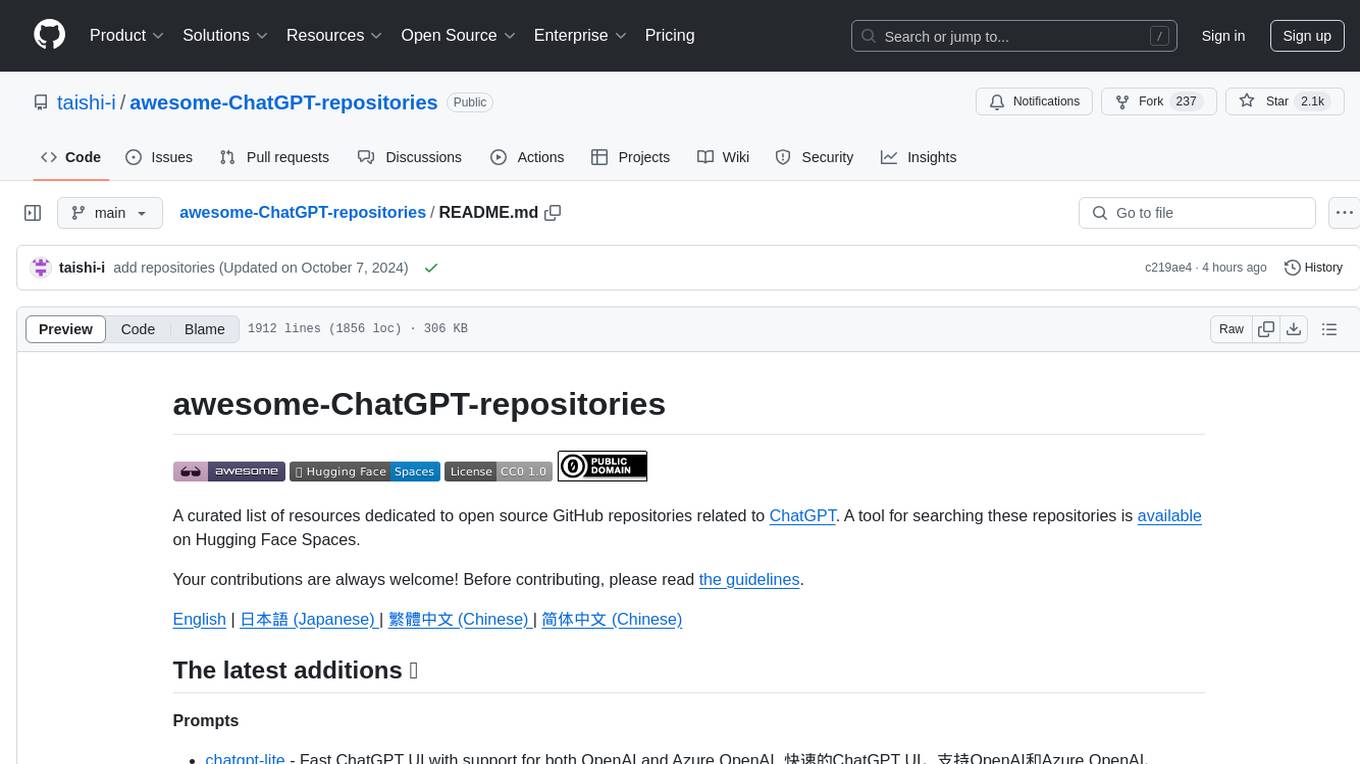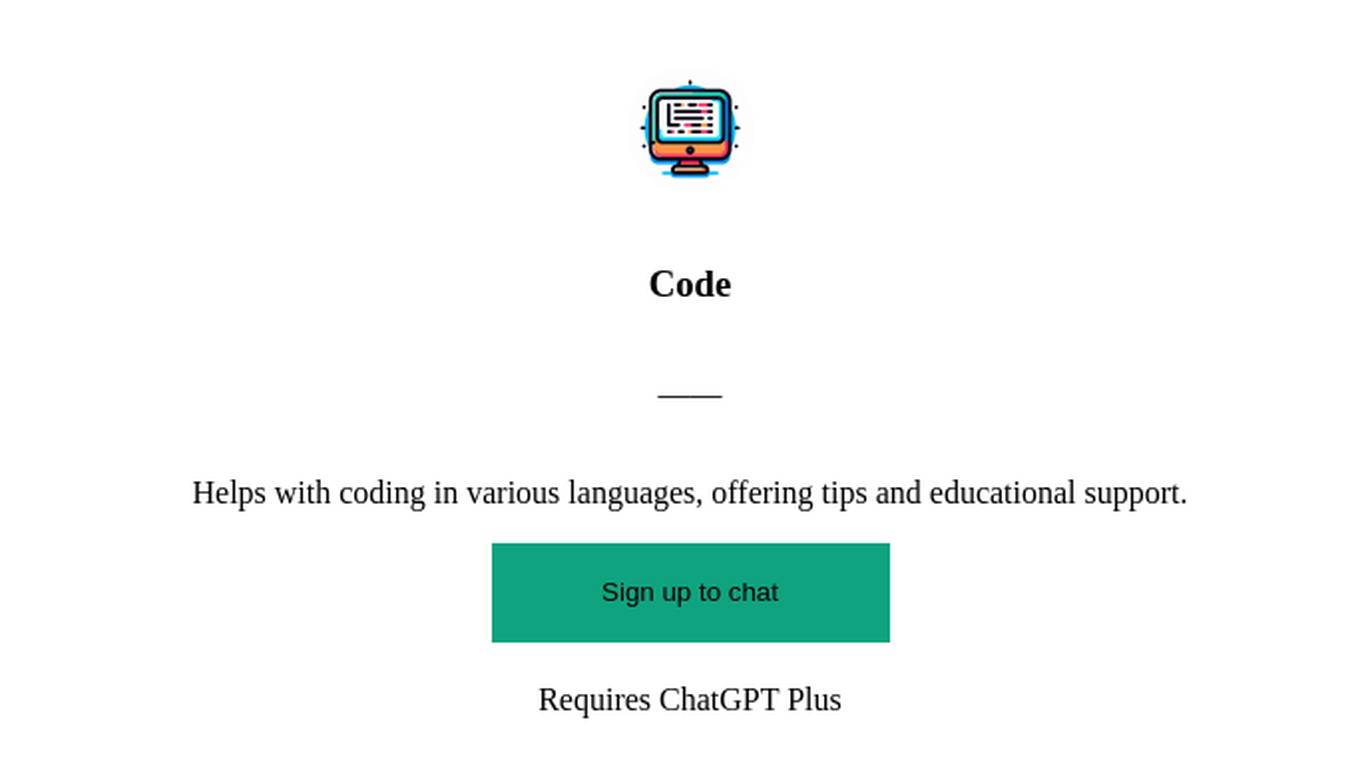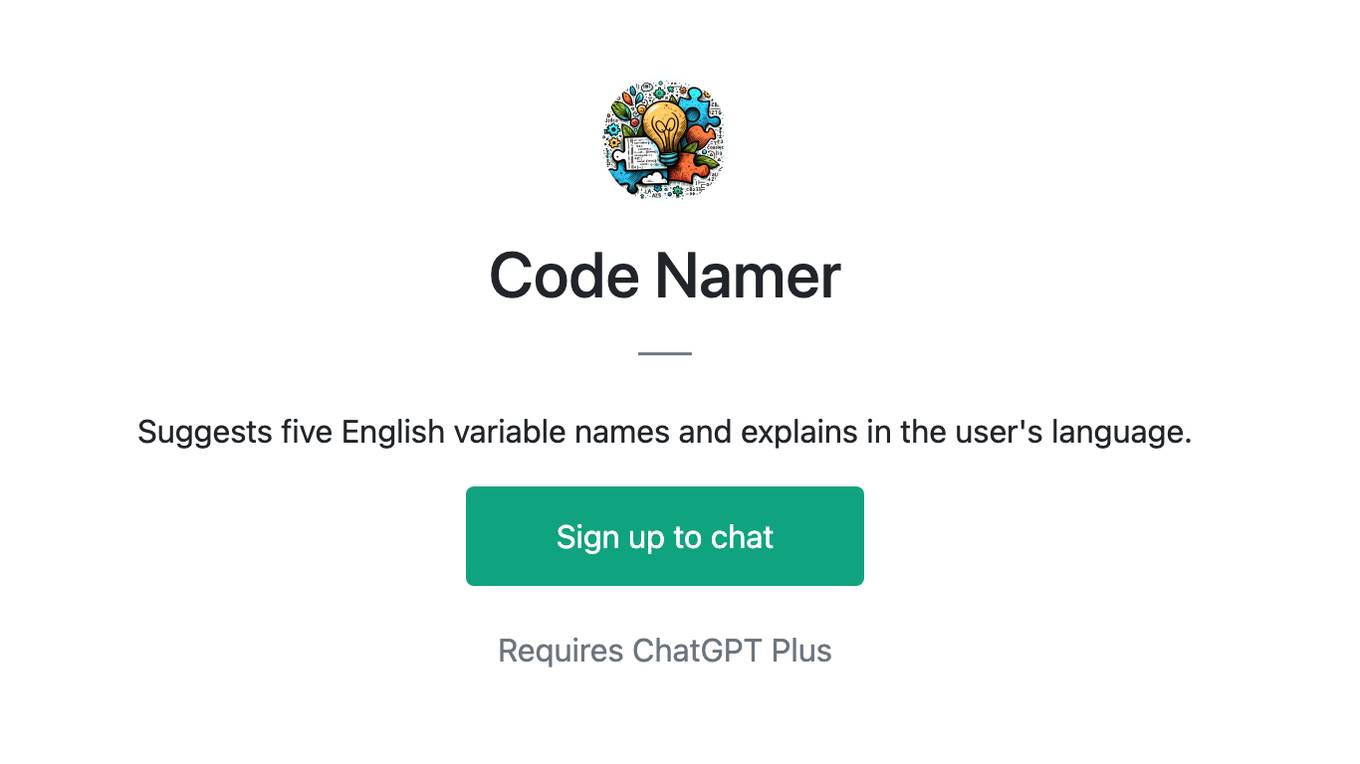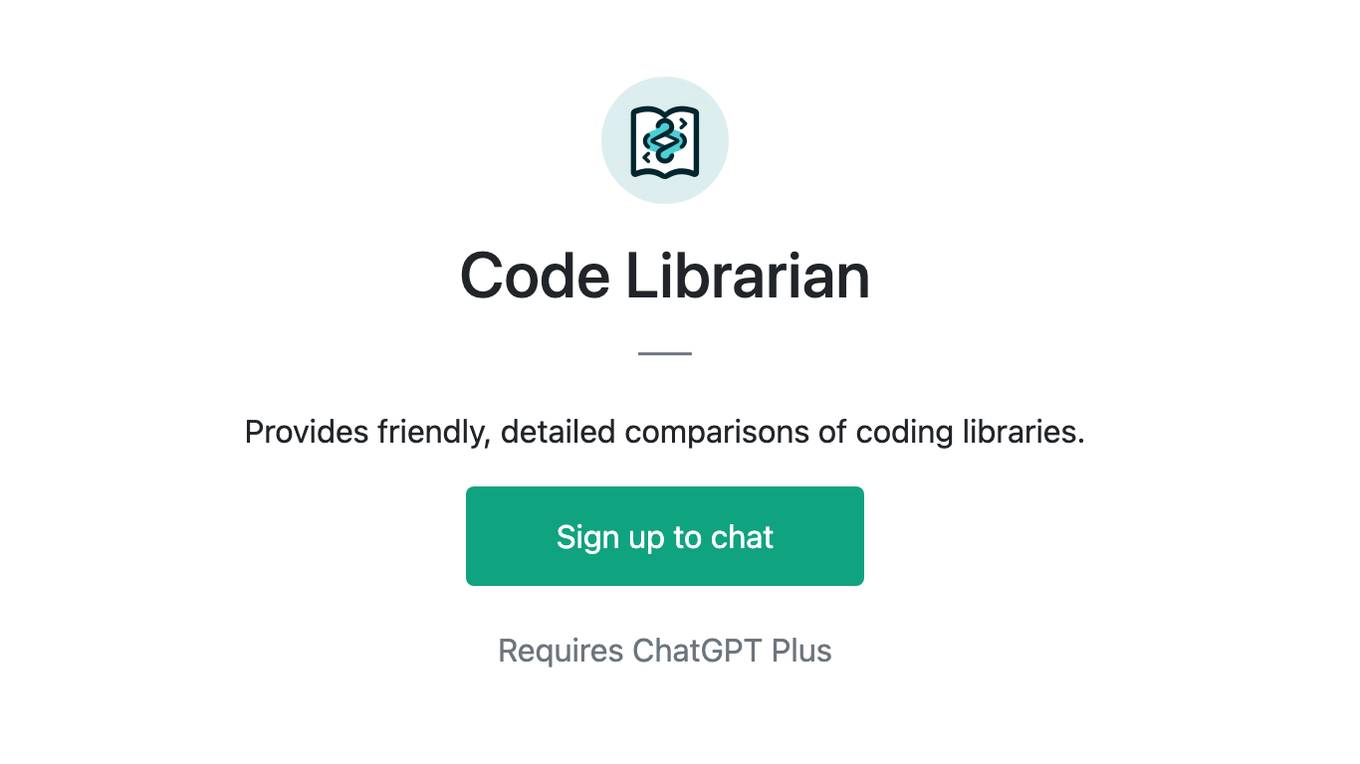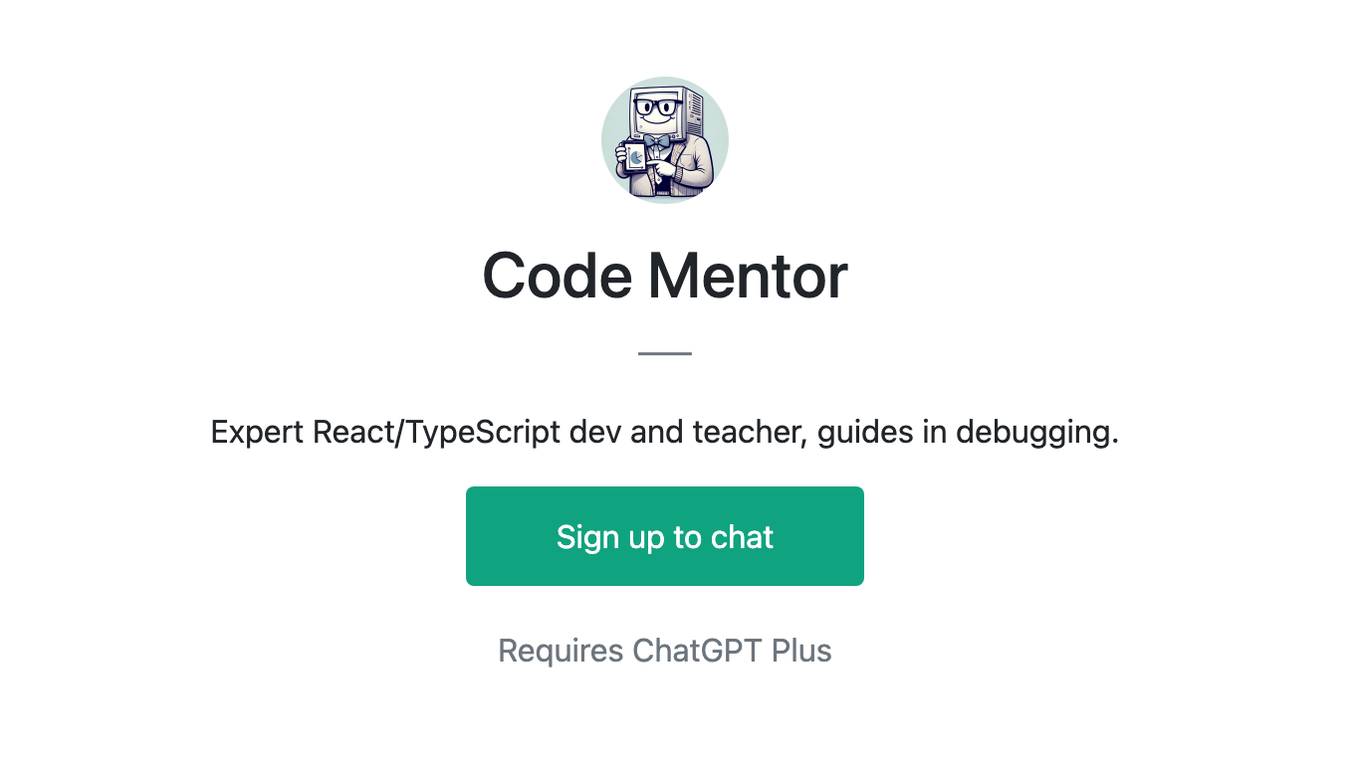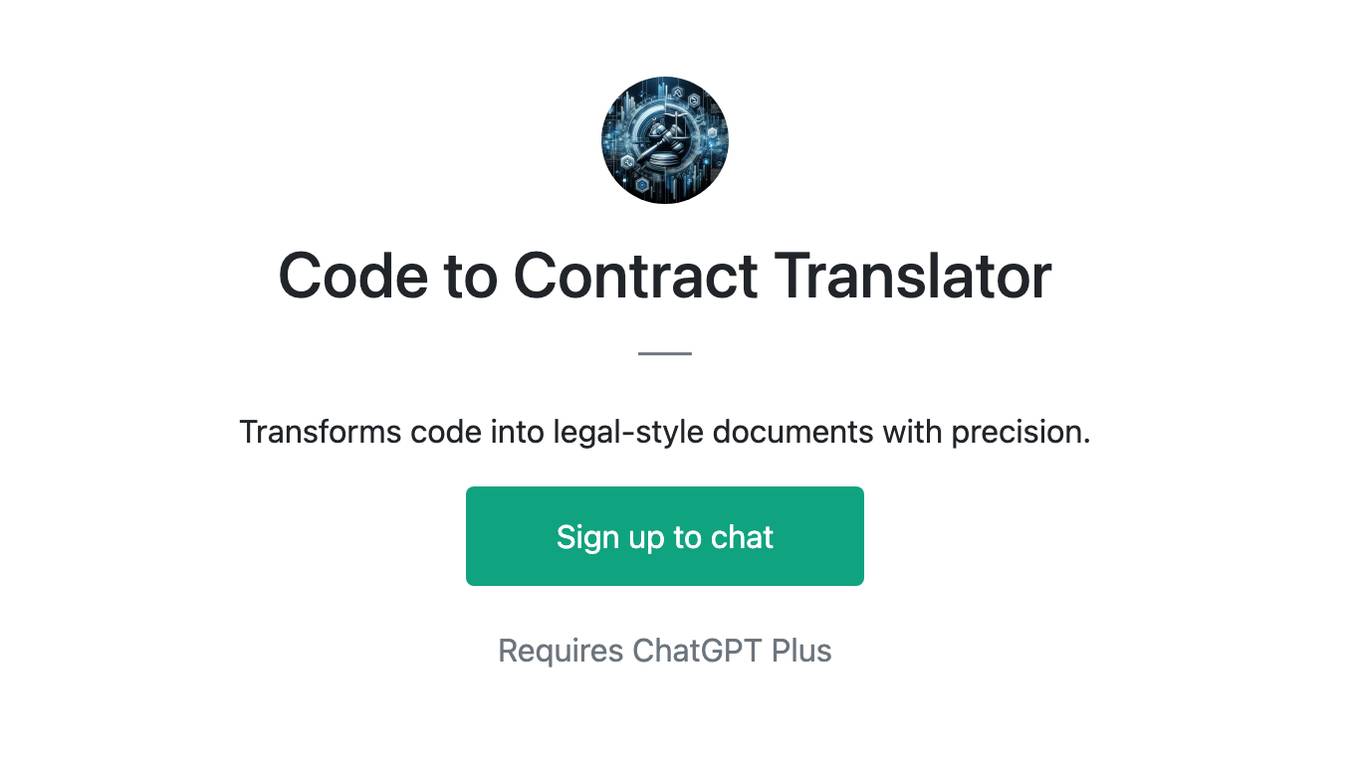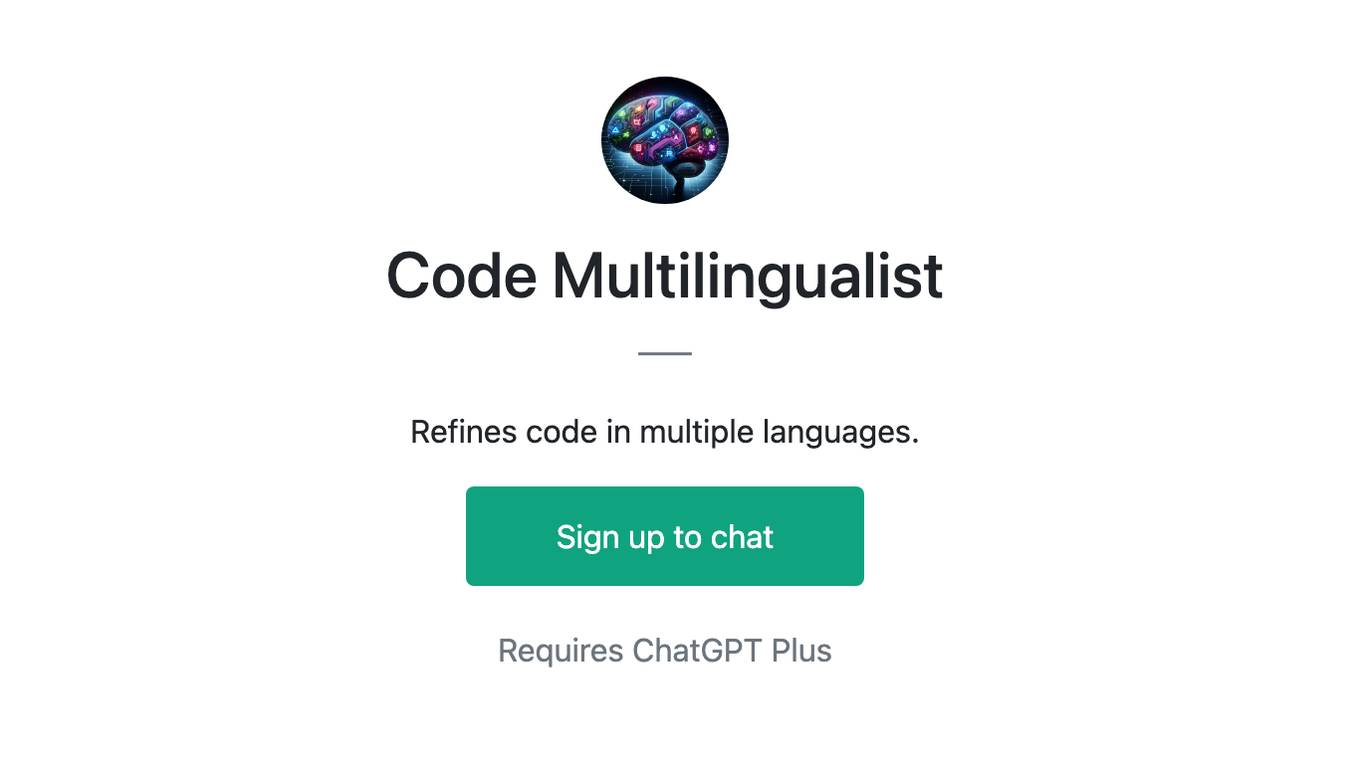Best AI tools for< Code Vulnerability Detection >
20 - AI tool Sites
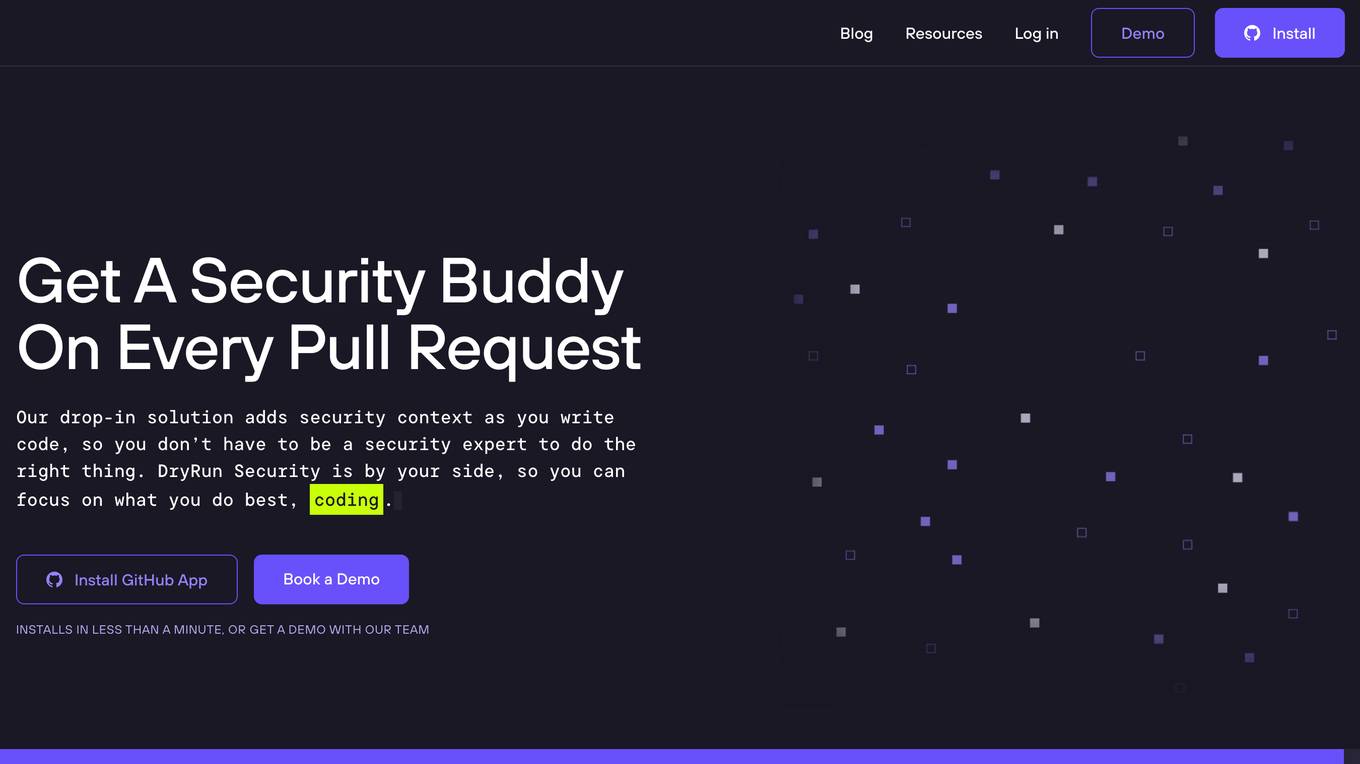
DryRun Security
DryRun Security is an AI-powered security tool designed to provide developers with security context and analysis for code changes in real-time. It offers a suite of analyzers to identify risky code changes, such as SQL injection, command injection, and sensitive file modifications. The tool integrates seamlessly with GitHub repositories, offering developers a security buddy to enhance code security without slowing down the development process. DryRun Security aims to improve developer productivity, protect code repositories, and provide security context before code merges.
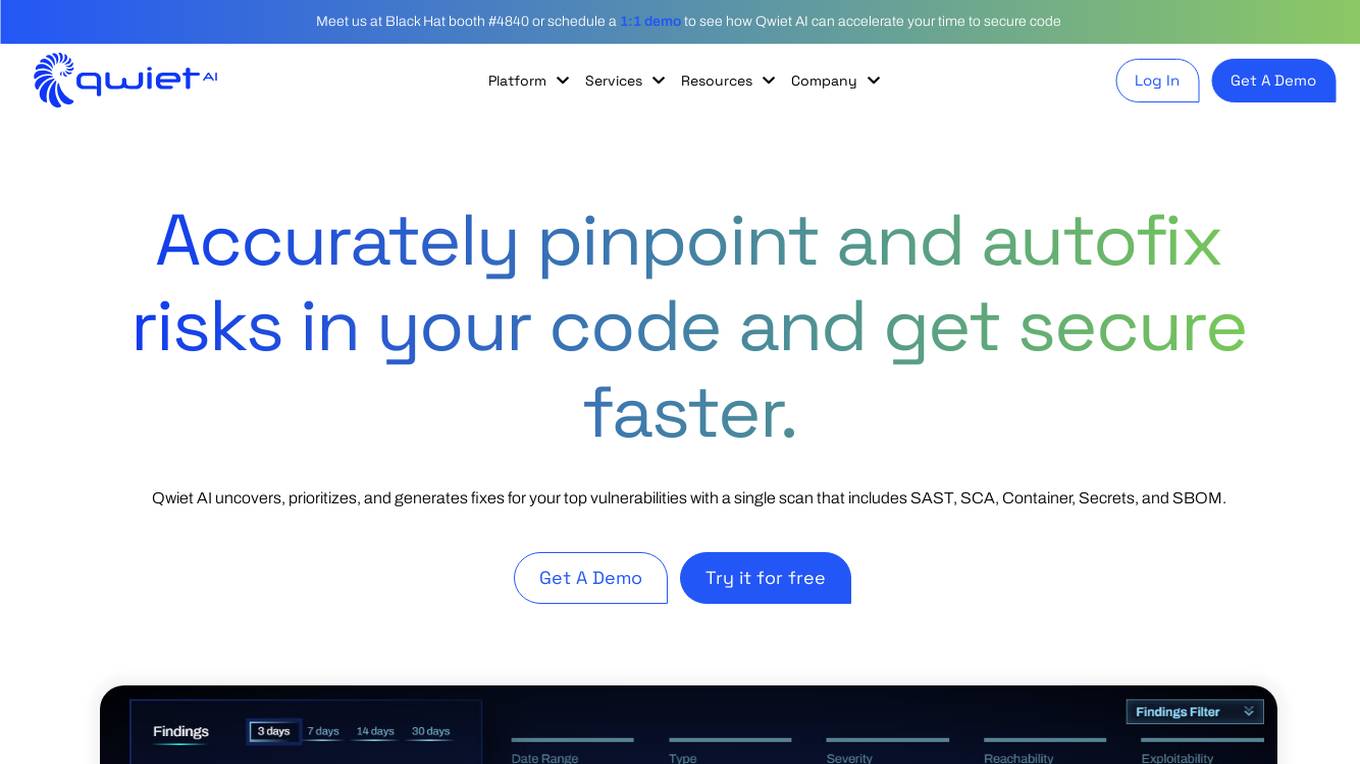
Qwiet AI
Qwiet AI is a code vulnerability detection platform that accelerates secure coding by uncovering, prioritizing, and generating fixes for top vulnerabilities with a single scan. It offers features such as AI-enhanced SAST, contextual SCA, AI AutoFix, Container Security, SBOM, and Secrets detection. Qwiet AI helps InfoSec teams in companies to accurately pinpoint and autofix risks in their code, reducing false positives and remediation time. The platform provides a unified vulnerability dashboard, prioritizes risks, and offers tailored fix suggestions based on the full context of the code.
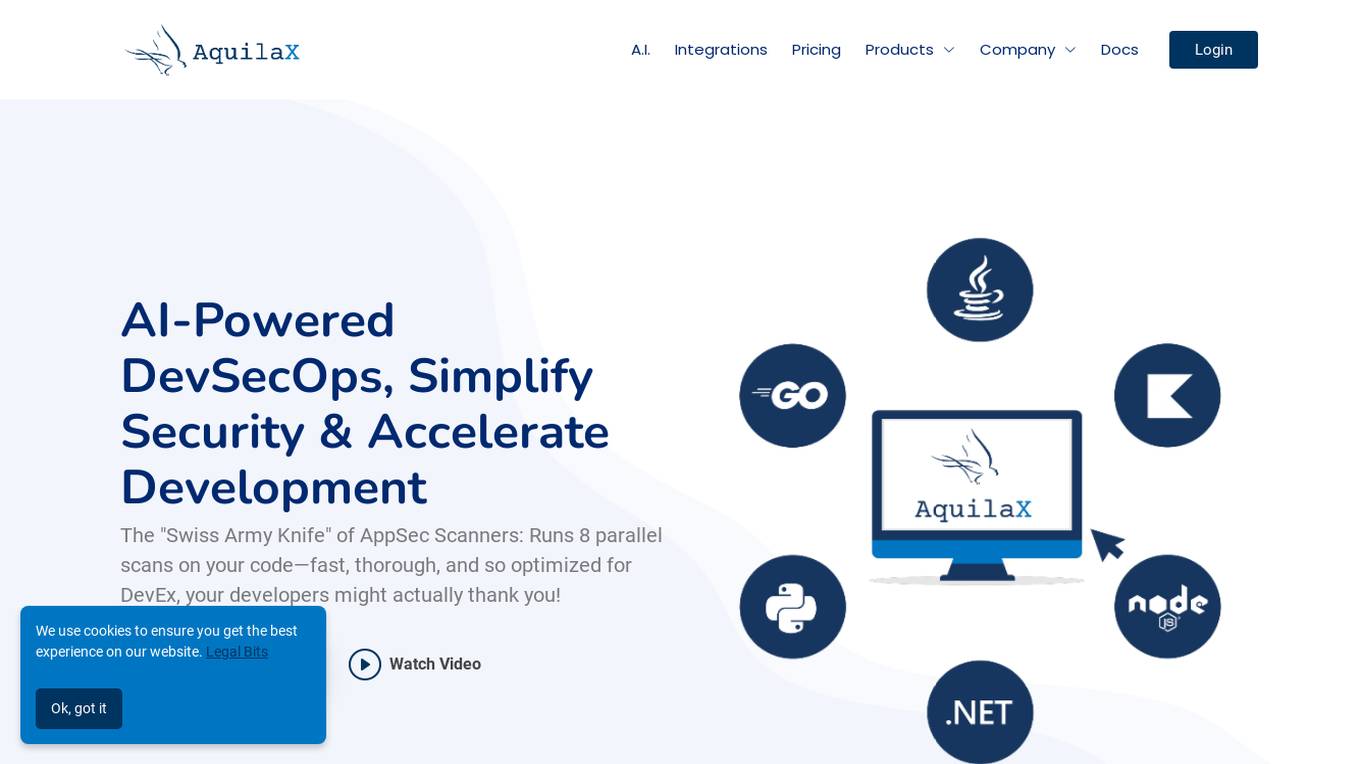
AquilaX
AquilaX is an AI-powered DevSecOps platform that simplifies security and accelerates development processes. It offers a comprehensive suite of security scanning tools, including secret identification, PII scanning, SAST, container scanning, and more. AquilaX is designed to integrate seamlessly into the development workflow, providing fast and accurate results by leveraging AI models trained on extensive datasets. The platform prioritizes developer experience by eliminating noise and false positives, making it a go-to choice for modern Secure-SDLC teams worldwide.

Smaty.xyz
Smaty.xyz is a comprehensive platform that provides a suite of tools for code generation and security auditing. With Smaty.xyz, developers can quickly and easily generate high-quality code in multiple programming languages, ensuring consistency and reducing development time. Additionally, Smaty.xyz offers robust security auditing capabilities, enabling developers to identify and address vulnerabilities in their code, mitigating risks and enhancing the overall security of their applications.

CloudDefense.AI
CloudDefense.AI is an industry-leading multi-layered Cloud Native Application Protection Platform (CNAPP) that safeguards cloud infrastructure and cloud-native apps with expertise, precision, and confidence. It offers comprehensive cloud security solutions, vulnerability management, compliance, and application security testing. The platform utilizes advanced AI technology to proactively detect and analyze real-time threats, ensuring robust protection for businesses against cyber threats.
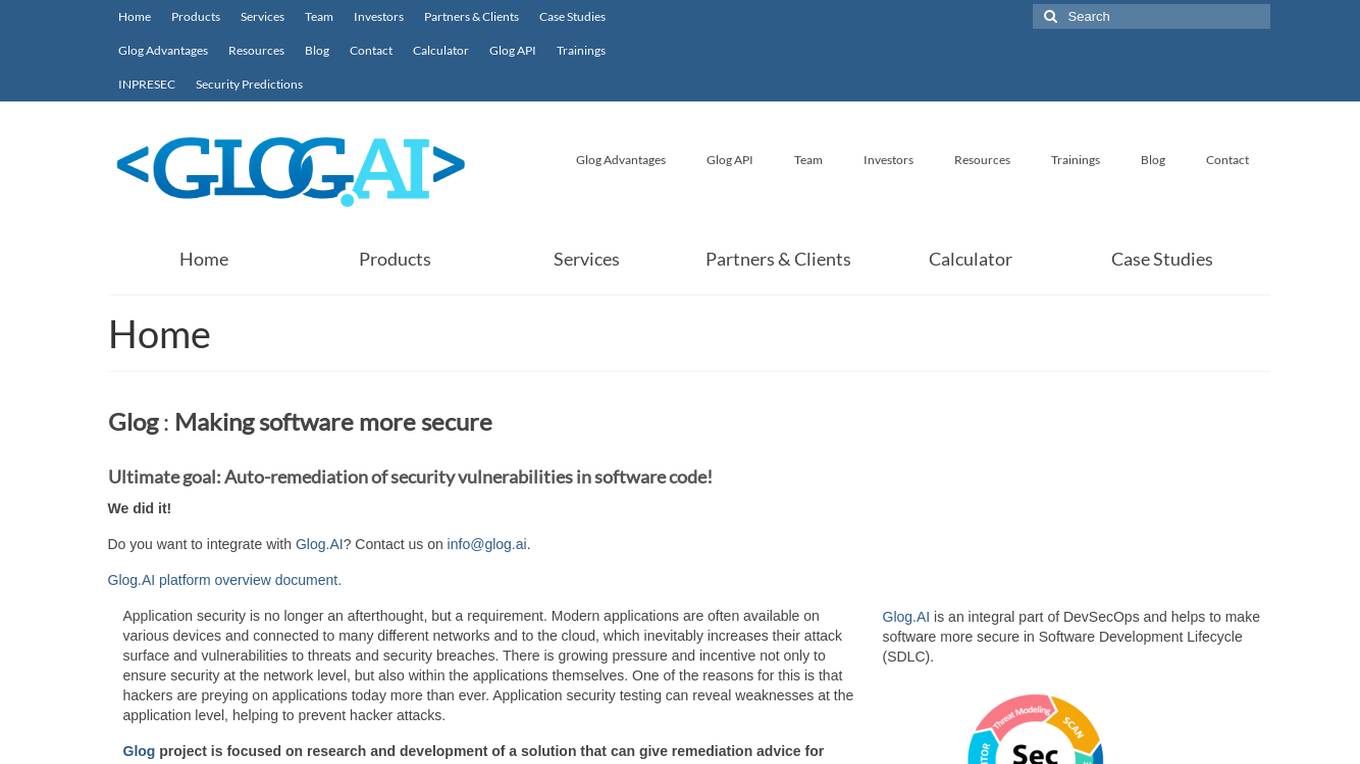
Glog
Glog is an AI application focused on making software more secure by providing remediation advice for security vulnerabilities in software code based on context. It is capable of automatically fixing vulnerabilities, thus reducing security risks and protecting against cyber attacks. The platform utilizes machine learning and AI to enhance software security and agility, ensuring system reliability, integrity, and safety.
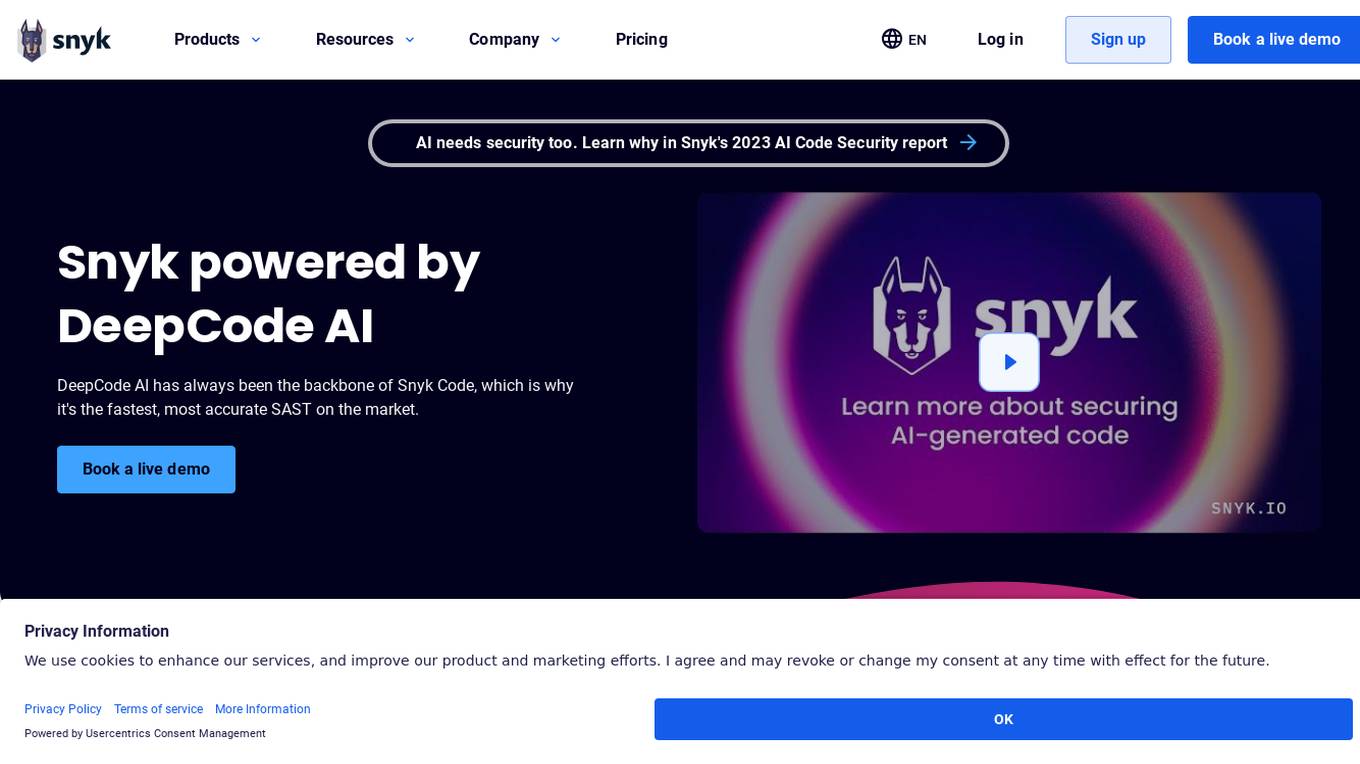
Snyk
Snyk is a developer security platform powered by DeepCode AI, offering solutions for application security, software supply chain security, and secure AI-generated code. It provides comprehensive vulnerability data, license compliance management, and self-service security education. Snyk integrates AI models trained on security-specific data to secure applications and manage tech debt effectively. The platform ensures developer-first security with one-click security fixes and AI-powered recommendations, enhancing productivity while maintaining security standards.

VIDOC
VIDOC is an AI-powered security engineer that automates code review and penetration testing. It continuously scans and reviews code to detect and fix security issues, helping developers deliver secure software faster. VIDOC is easy to use, requiring only two lines of code to be added to a GitHub Actions workflow. It then takes care of the rest, providing developers with a tailored code solution to fix any issues found.

Pixeebot
Pixeebot is an automated product security engineer that helps developers fix vulnerabilities, harden code, squash bugs, and improve code quality. It integrates with your existing workflow and can be used locally via CLI or through the GitHub app. Pixeebot is powered by the open source Codemodder framework, which allows you to build your own custom codemods.

Kindo
Kindo is an AI-powered platform designed for DevSecOps teams to automate tasks, write doctrine, and orchestrate infrastructure responses. It offers AI-powered Runbook automations to streamline workflows, automate tedious tasks, and enhance security controls. Kindo enables users to offload time-consuming tasks to AI Agents, prioritize critical tasks, and monitor AI-related activities for compliance and informed decision-making. The platform provides a comprehensive vantage point for modern infrastructure defense and instrumentation, allowing users to create repeatable processes, automate vulnerability assessment and remediation, and secure multi-cloud IAM configurations.

MobiHeals
MobiHeals is a comprehensive security vulnerability analysis mobile application that offers cloud-based static and dynamic application security testing for mobile apps. It provides cost-efficient and scalable security testing on the cloud, compliance with global cybersecurity guidelines, and integrated vulnerability assessment in one platform. Users can continuously analyze and detect security vulnerabilities in the mobile application source code, perform manual and automated testing, and receive actionable reports. MobiHeals helps users manage security vulnerabilities and offers an introductory offer for 30 days with various security analysis features.

Code to Flowchart
Code to Flowchart is an AI-powered tool that helps users visualize and understand program logic instantly. It allows users to convert code into interactive flowcharts with the help of AI analysis. The tool supports all major programming languages, identifies code paths and logic flows, and offers multiple visualization options like flowcharts, sequence diagrams, and class diagrams. Users can export diagrams in various formats and customize color schemes and themes. Code to Flowchart aims to simplify complex code structures and enhance collaboration among developers.

Code & Pepper
Code & Pepper is an elite software development company specializing in FinTech and HealthTech. They combine human talent with AI tools to deliver efficient solutions. With a focus on specific technologies like React.js, Node.js, Angular, Ruby on Rails, and React Native, they offer custom software products and dedicated software engineers. Their unique talent identification methodology selects the top 1.6% of candidates for exceptional outcomes. Code & Pepper champions human-AI centaur teams, harmonizing creativity with AI precision for superior results.
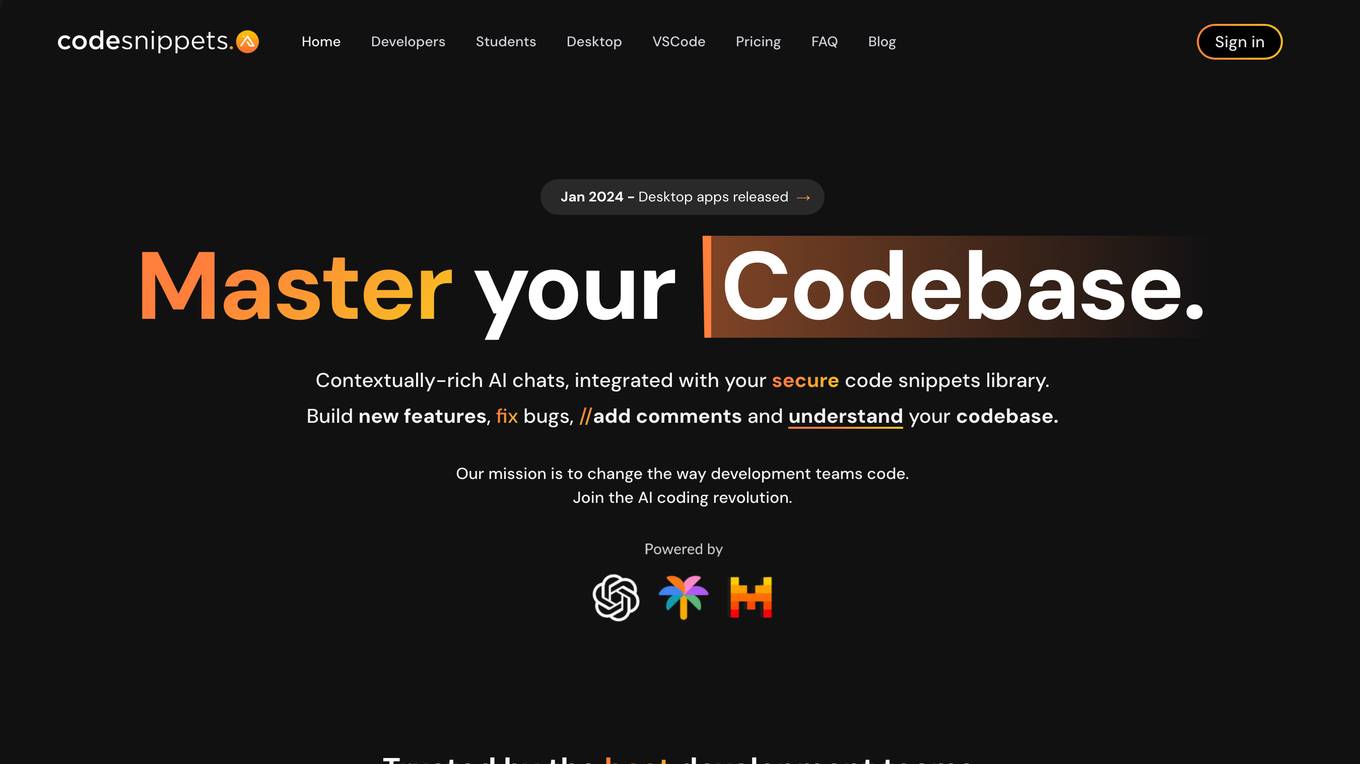
Code Snippets AI
Code Snippets AI is an AI-powered code snippets library for teams. It helps developers master their codebase with contextually-rich AI chats, integrated with a secure code snippets library. Developers can build new features, fix bugs, add comments, and understand their codebase with the help of Code Snippets AI. The tool is trusted by the best development teams and helps developers code smarter than ever. With Code Snippets AI, developers can leverage the power of a codebase aware assistant, helping them write clean, performance optimized code. They can also create documentation, refactor, debug and generate code with full codebase context. This helps developers spend more time creating code and less time debugging errors.
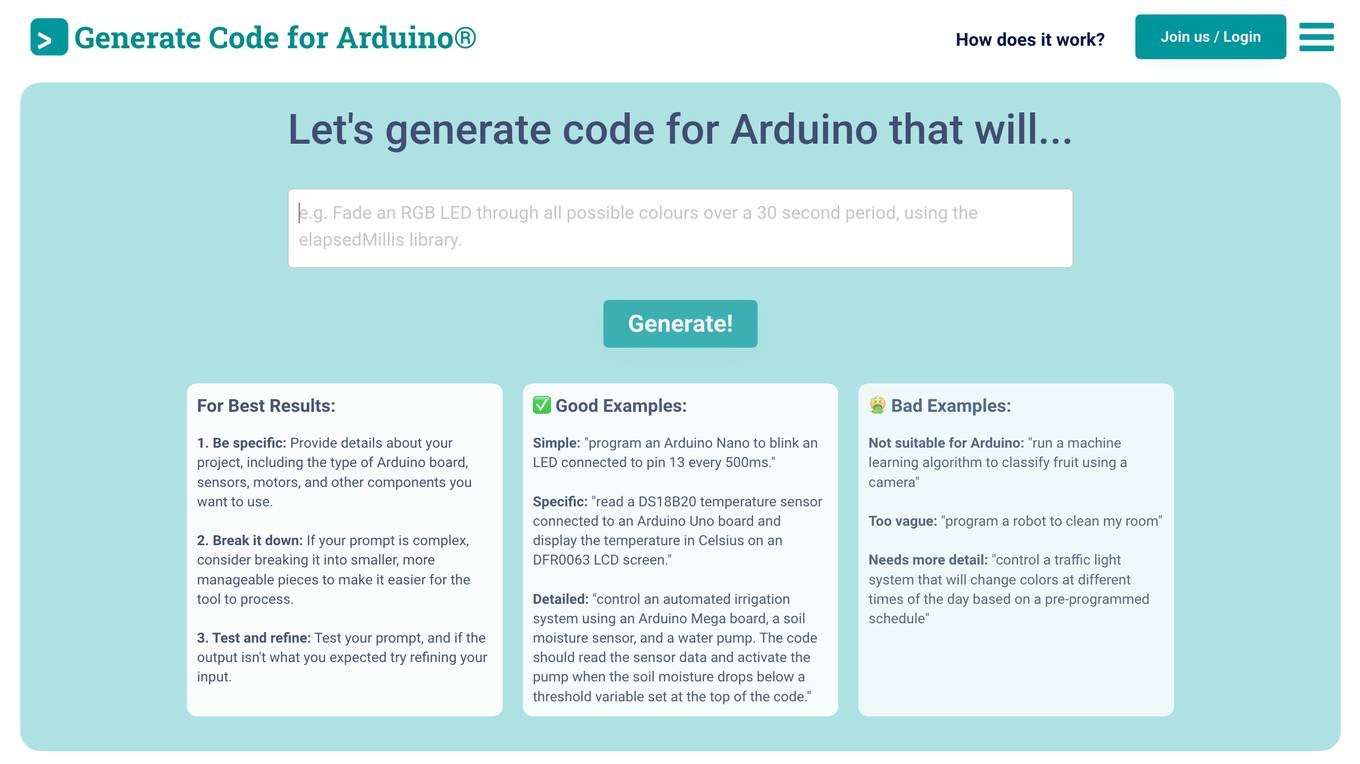
Duino Code Generator
The Duino Code Generator is a web application that allows users to generate code for Arduino projects. It provides a convenient platform for creating Arduino code snippets without the need for manual coding. The tool simplifies the process of programming Arduino boards by offering a user-friendly interface and automated code generation based on user inputs. Users can quickly generate code for various Arduino functionalities and projects, making it ideal for both beginners and experienced Arduino enthusiasts.
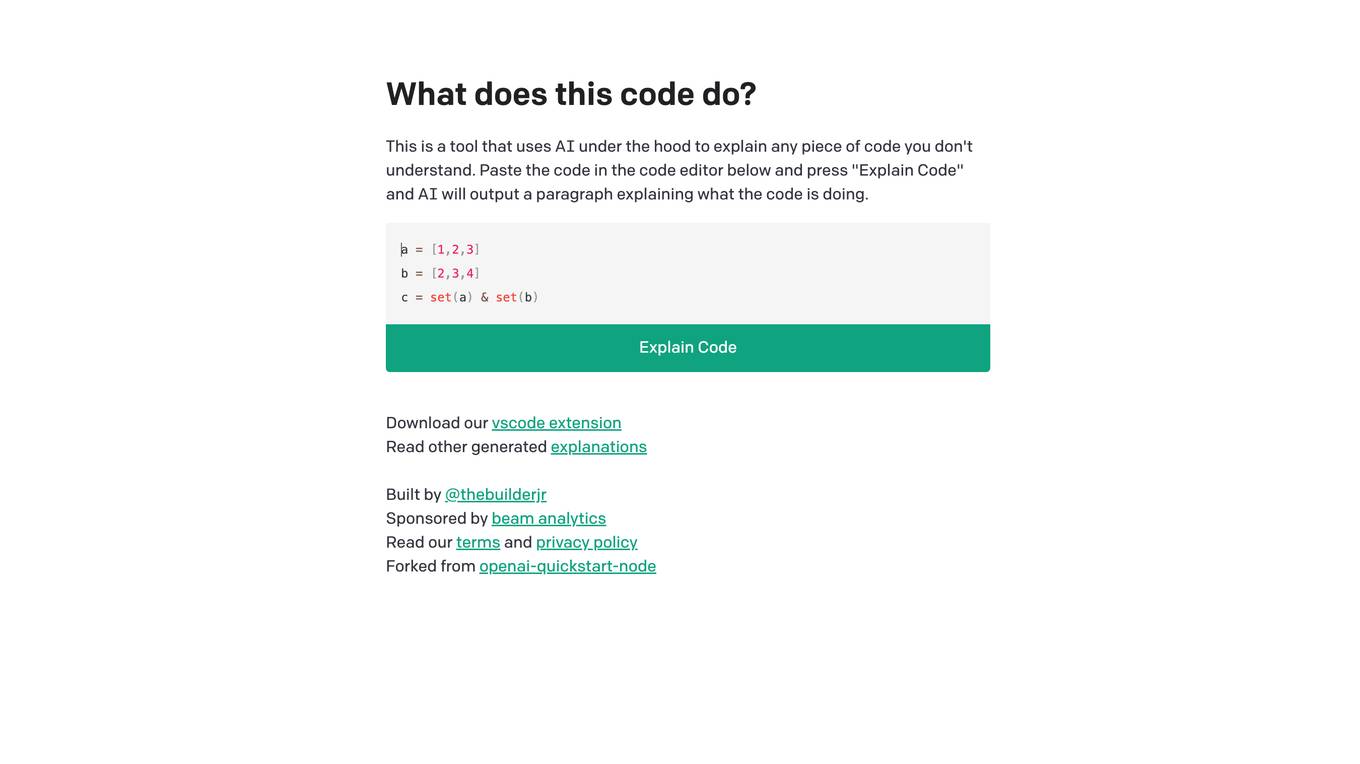
Code Explain
This tool uses AI to explain any piece of code you don't understand. Simply paste the code in the code editor and press "Explain Code" and AI will output a paragraph explaining what the code is doing.
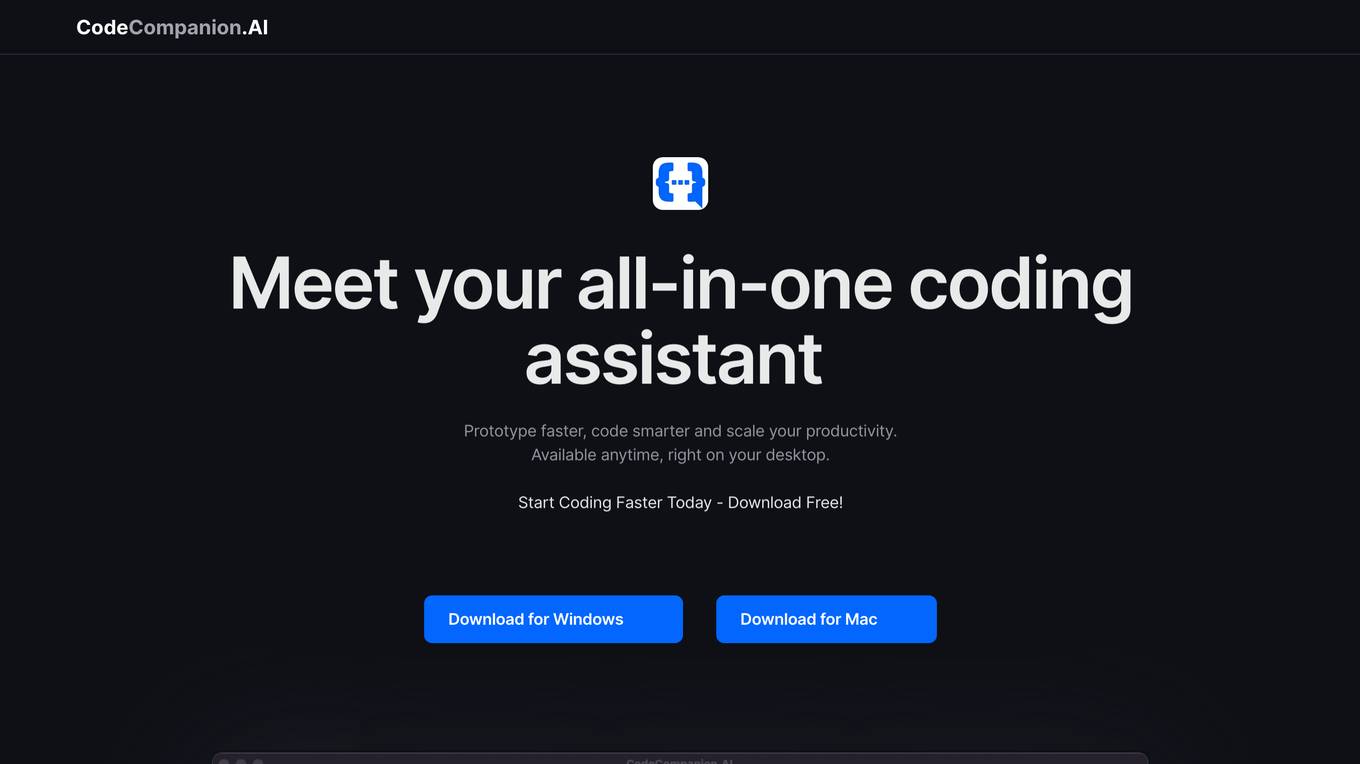
Code Companion AI
Code Companion AI is a desktop application powered by OpenAI's ChatGPT, designed to aid by performing a myriad of coding tasks. This application streamlines project management with its chatbot interface that can execute shell commands, generate code, handle database queries and review your existing code. Tasks are as simple as sending a message - you could request creation of a .gitignore file, or deploy an app on AWS, and CodeCompanion.AI does it for you. Simply download CodeCompanion.AI from the website to enjoy all features across various programming languages and platforms.
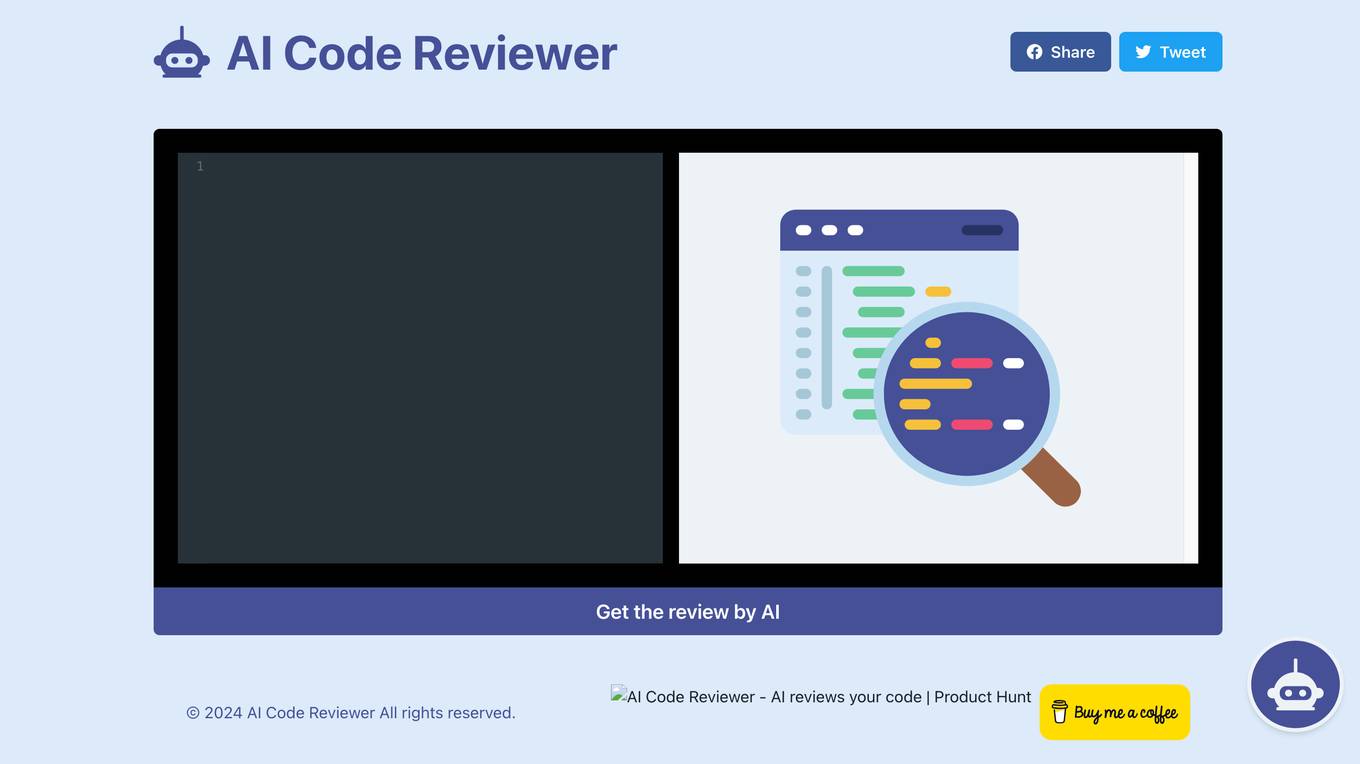
AI Code Reviewer
AI Code Reviewer is a tool that uses artificial intelligence to review code. It can help you find bugs, improve code quality, and enforce coding standards.
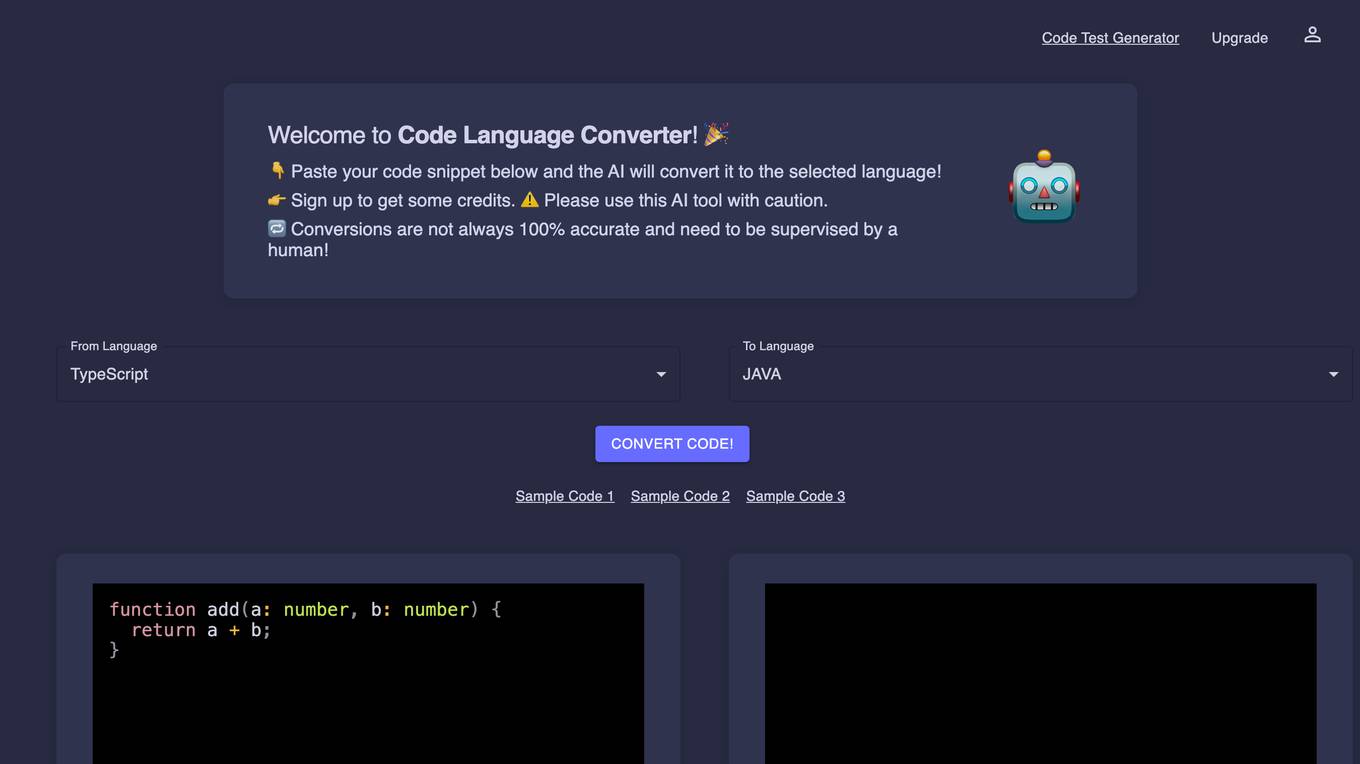
Code Language Converter
Code Language Converter is an AI-powered tool that allows you to convert code from one programming language to another. Simply paste your code snippet into the converter and select the desired output language. The AI will then generate the converted code, which you can download or copy and paste into your project.Code Language Converter is a valuable tool for developers of all levels. It can save you time and effort by automating the code conversion process. Additionally, the converter can help you to learn new programming languages by providing you with a way to see how code is written in different languages.
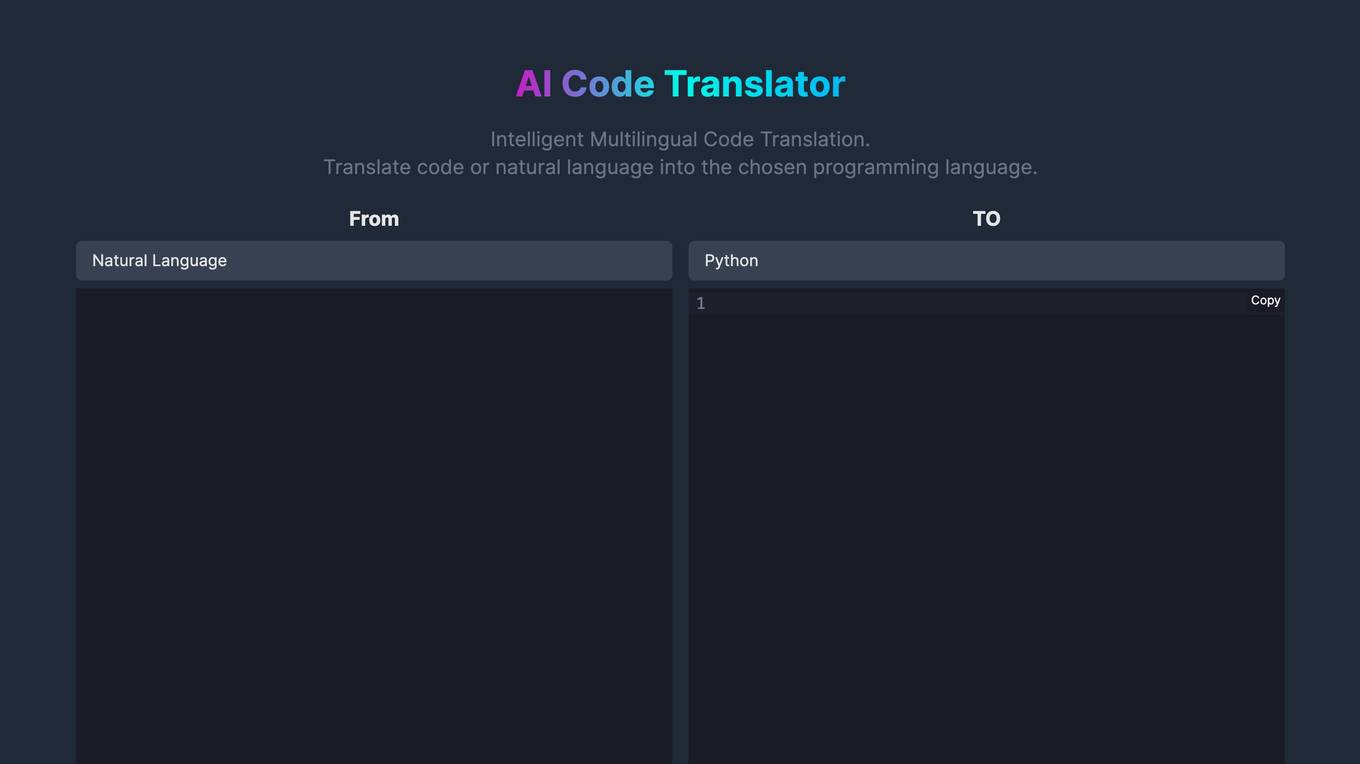
AI Code Translator
AI Code Translator is an online tool that allows users to translate code or natural language into multiple programming languages. It is powered by artificial intelligence (AI) and provides intelligent and efficient code translation. With AI Code Translator, developers can save time and effort by quickly converting code between different languages, optimizing their development process.
20 - Open Source AI Tools
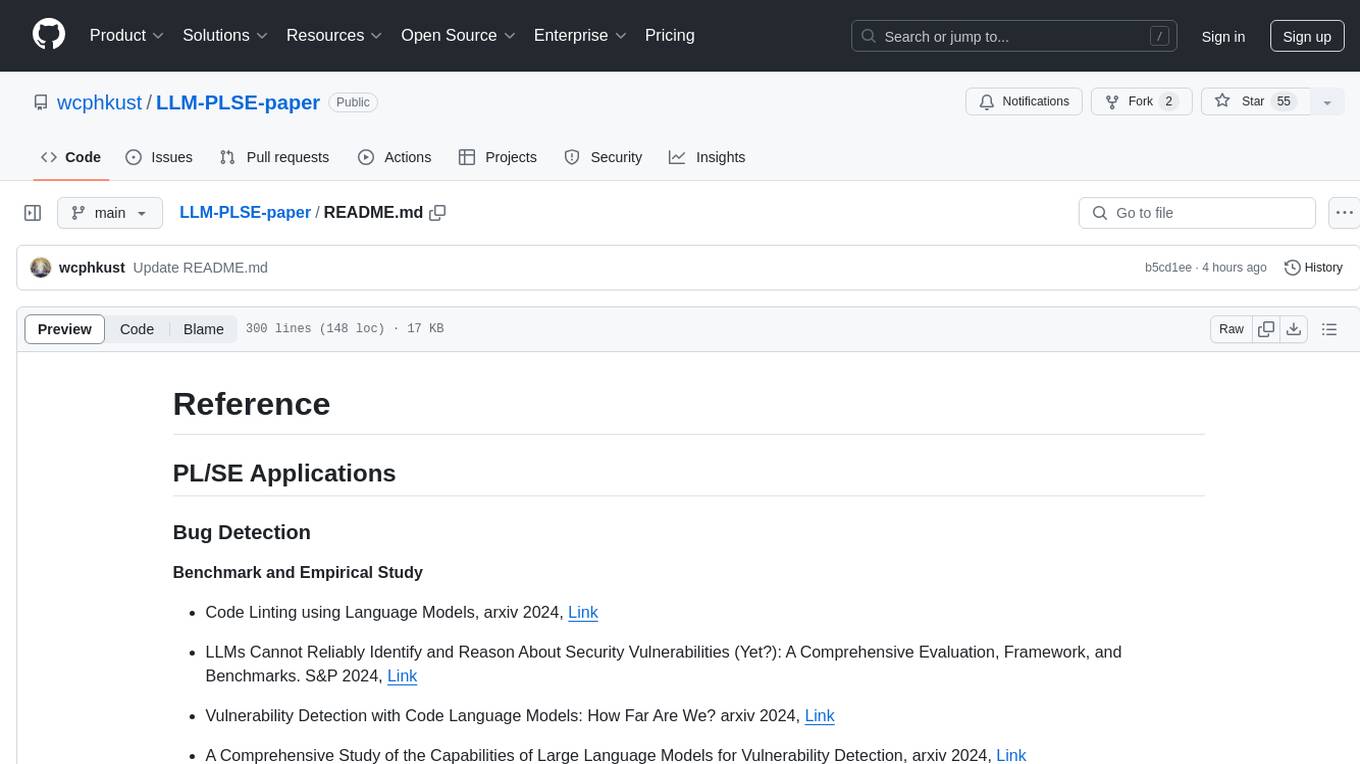
LLM-PLSE-paper
LLM-PLSE-paper is a repository focused on the applications of Large Language Models (LLMs) in Programming Language and Software Engineering (PL/SE) domains. It covers a wide range of topics including bug detection, specification inference and verification, code generation, fuzzing and testing, code model and reasoning, code understanding, IDE technologies, prompting for reasoning tasks, and agent/tool usage and planning. The repository provides a comprehensive collection of research papers, benchmarks, empirical studies, and frameworks related to the capabilities of LLMs in various PL/SE tasks.
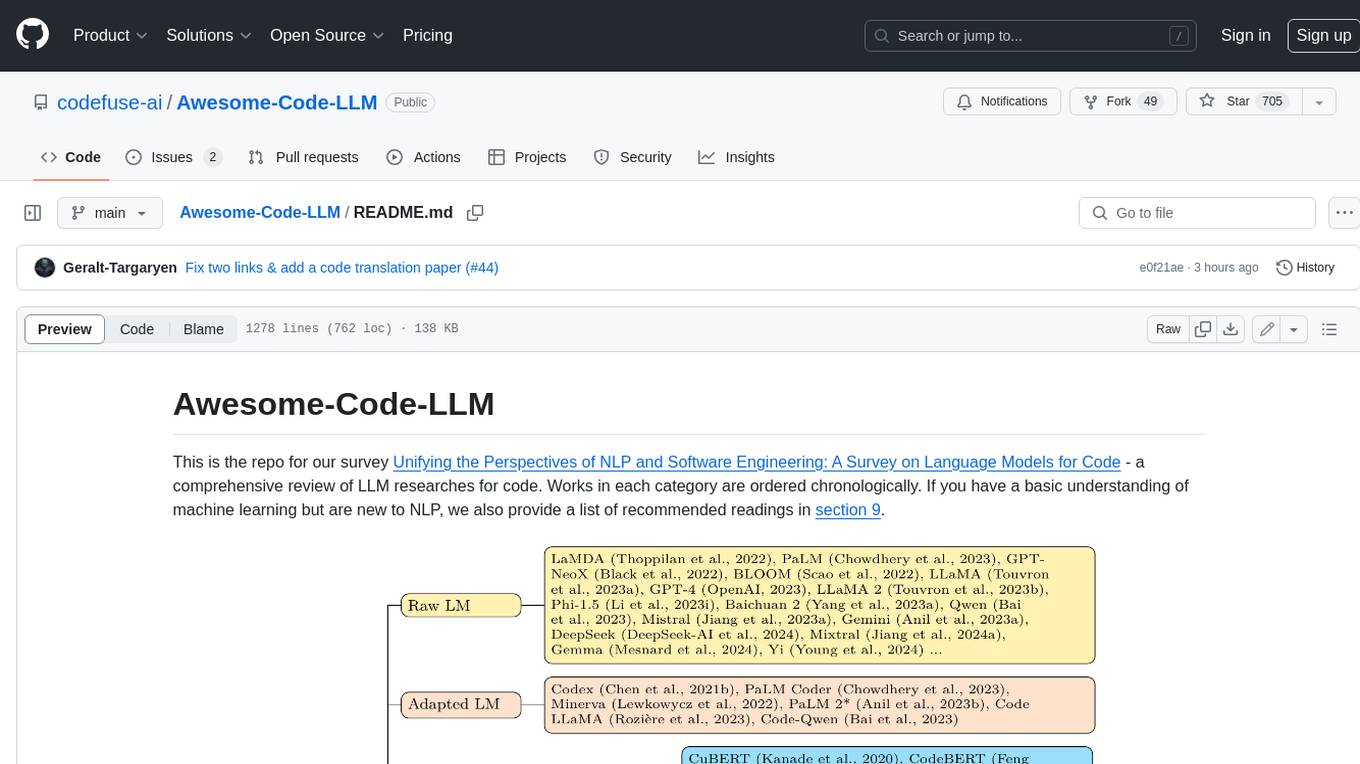
Awesome-Code-LLM
Analyze the following text from a github repository (name and readme text at end) . Then, generate a JSON object with the following keys and provide the corresponding information for each key, in lowercase letters: 'description' (detailed description of the repo, must be less than 400 words,Ensure that no line breaks and quotation marks.),'for_jobs' (List 5 jobs suitable for this tool,in lowercase letters), 'ai_keywords' (keywords of the tool,user may use those keyword to find the tool,in lowercase letters), 'for_tasks' (list of 5 specific tasks user can use this tool to do,in lowercase letters), 'answer' (in english languages)
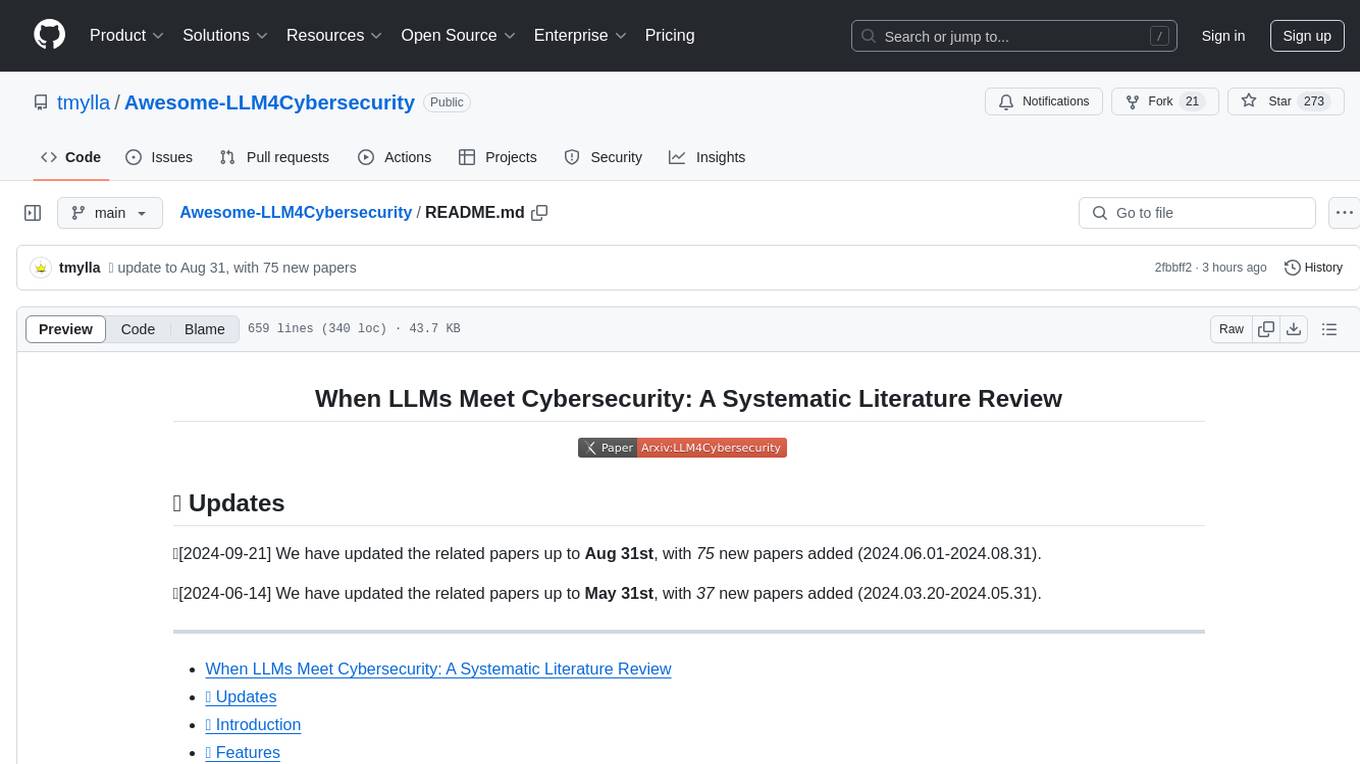
Awesome-LLM4Cybersecurity
The repository 'Awesome-LLM4Cybersecurity' provides a comprehensive overview of the applications of Large Language Models (LLMs) in cybersecurity. It includes a systematic literature review covering topics such as constructing cybersecurity-oriented domain LLMs, potential applications of LLMs in cybersecurity, and research directions in the field. The repository analyzes various benchmarks, datasets, and applications of LLMs in cybersecurity tasks like threat intelligence, fuzzing, vulnerabilities detection, insecure code generation, program repair, anomaly detection, and LLM-assisted attacks.
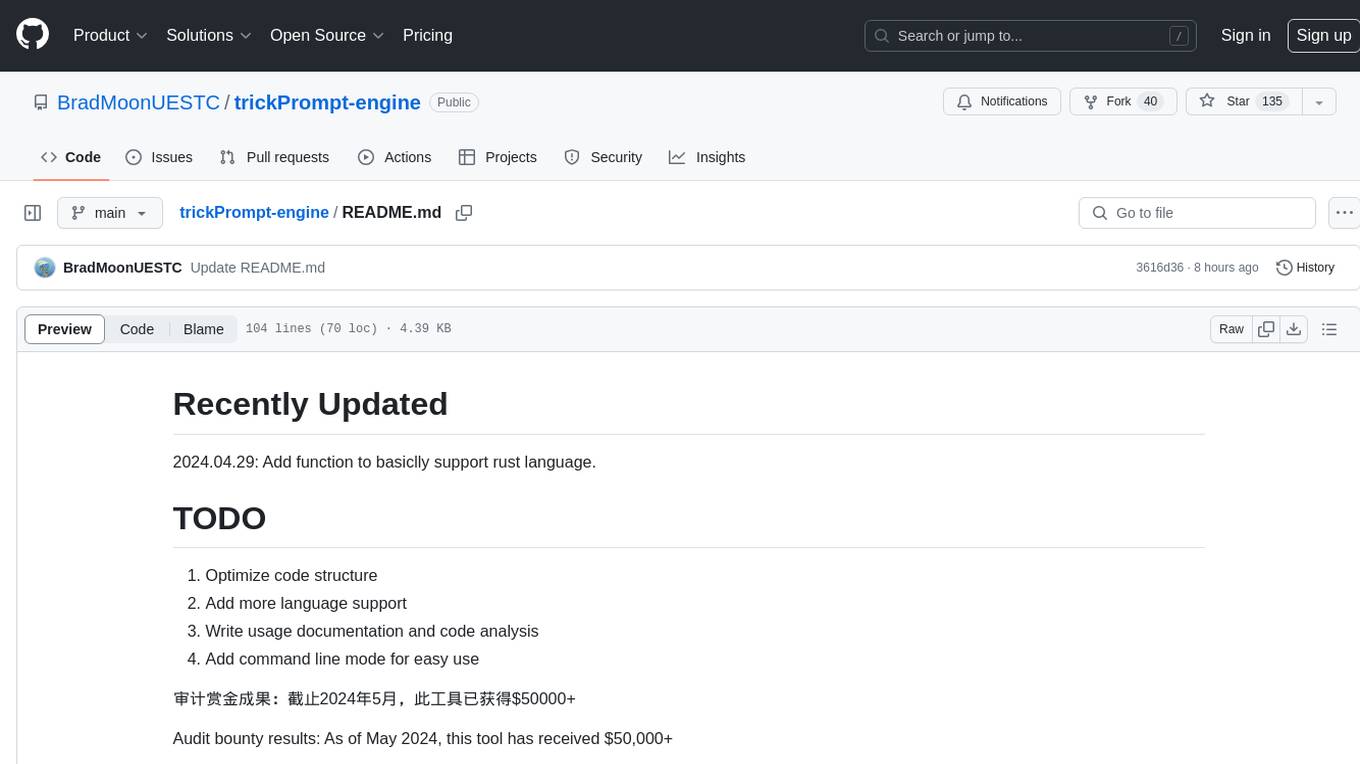
trickPrompt-engine
This repository contains a vulnerability mining engine based on GPT technology. The engine is designed to identify logic vulnerabilities in code by utilizing task-driven prompts. It does not require prior knowledge or fine-tuning and focuses on prompt design rather than model design. The tool is effective in real-world projects and should not be used for academic vulnerability testing. It supports scanning projects in various languages, with current support for Solidity. The engine is configured through prompts and environment settings, enabling users to scan for vulnerabilities in their codebase. Future updates aim to optimize code structure, add more language support, and enhance usability through command line mode. The tool has received a significant audit bounty of $50,000+ as of May 2024.
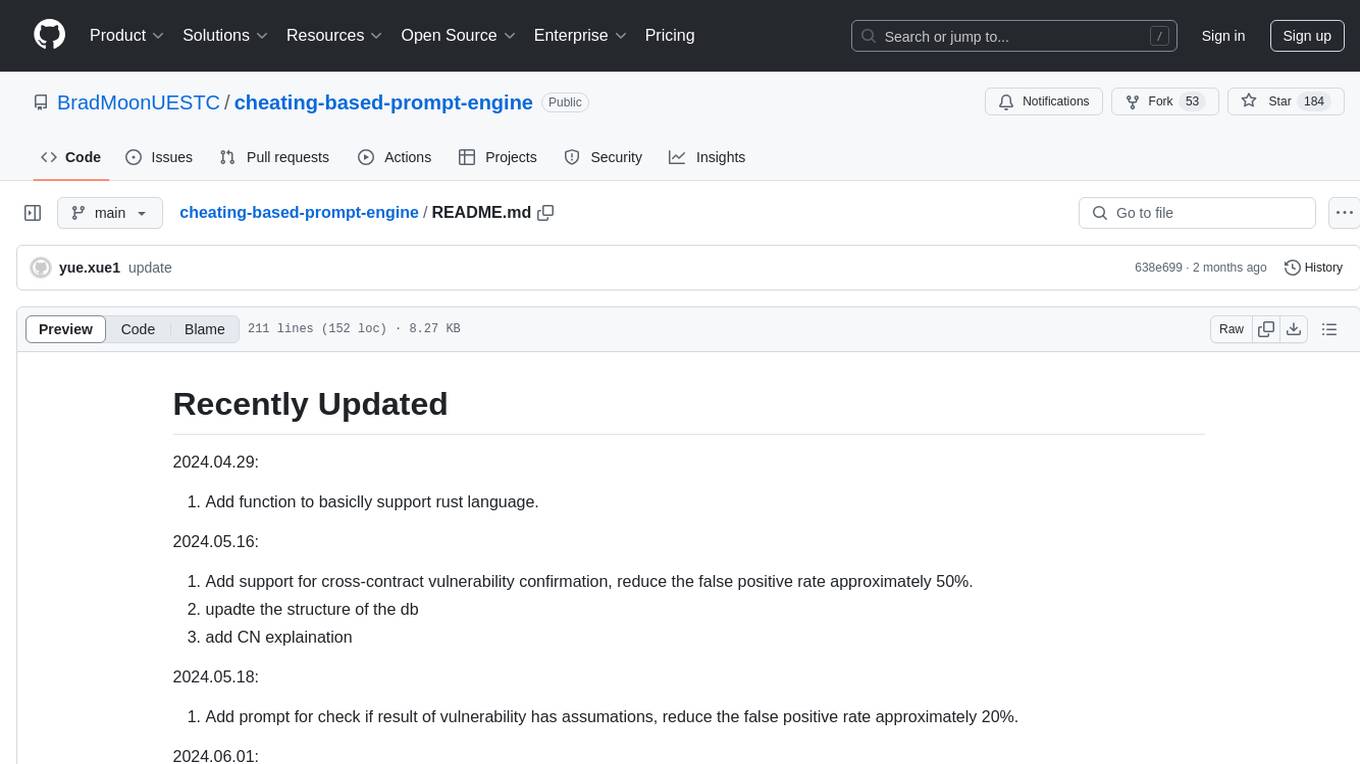
cheating-based-prompt-engine
This is a vulnerability mining engine purely based on GPT, requiring no prior knowledge base, no fine-tuning, yet its effectiveness can overwhelmingly surpass most of the current related research. The core idea revolves around being task-driven, not question-driven, driven by prompts, not by code, and focused on prompt design, not model design. The essence is encapsulated in one word: deception. It is a type of code understanding logic vulnerability mining that fully stimulates the capabilities of GPT, suitable for real actual projects.
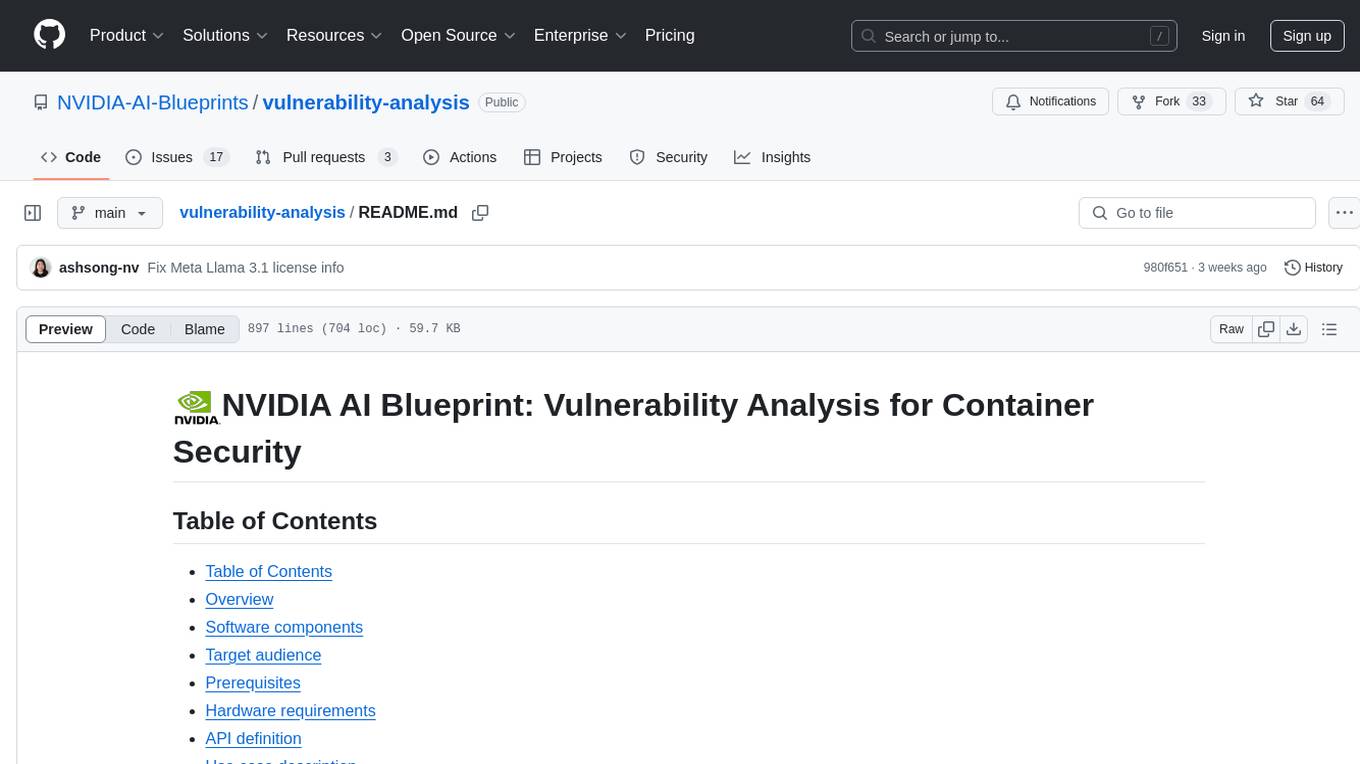
vulnerability-analysis
The NVIDIA AI Blueprint for Vulnerability Analysis for Container Security showcases accelerated analysis on common vulnerabilities and exposures (CVE) at an enterprise scale, reducing mitigation time from days to seconds. It enables security analysts to determine software package vulnerabilities using large language models (LLMs) and retrieval-augmented generation (RAG). The blueprint is designed for security analysts, IT engineers, and AI practitioners in cybersecurity. It requires NVAIE developer license and API keys for vulnerability databases, search engines, and LLM model services. Hardware requirements include L40 GPU for pipeline operation and optional LLM NIM and Embedding NIM. The workflow involves LLM pipeline for CVE impact analysis, utilizing LLM planner, agent, and summarization nodes. The blueprint uses NVIDIA NIM microservices and Morpheus Cybersecurity AI SDK for vulnerability analysis.
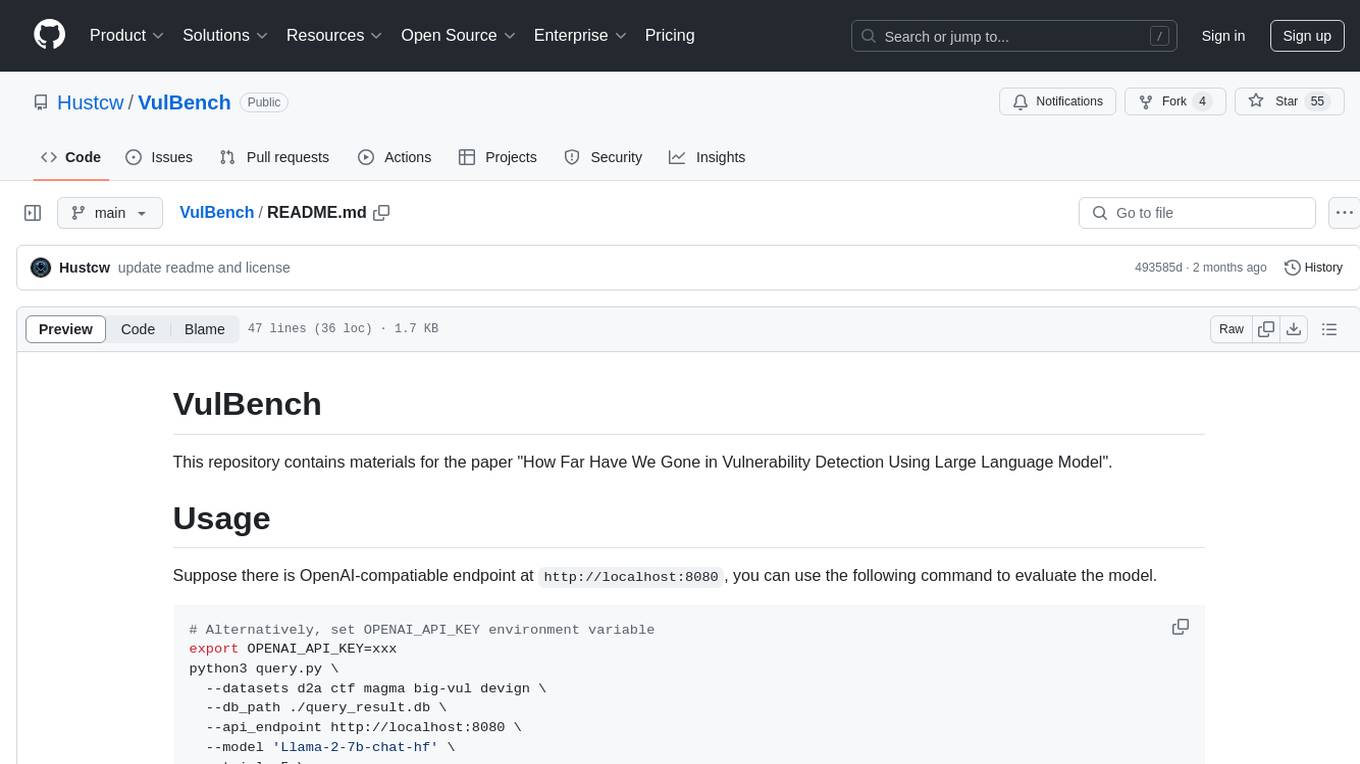
VulBench
This repository contains materials for the paper 'How Far Have We Gone in Vulnerability Detection Using Large Language Model'. It provides a tool for evaluating vulnerability detection models using datasets such as d2a, ctf, magma, big-vul, and devign. Users can query the model 'Llama-2-7b-chat-hf' and store results in a SQLite database for analysis. The tool supports binary and multiple classification tasks with concurrency settings. Additionally, users can evaluate the results and generate a CSV file with metrics for each dataset and prompt type.
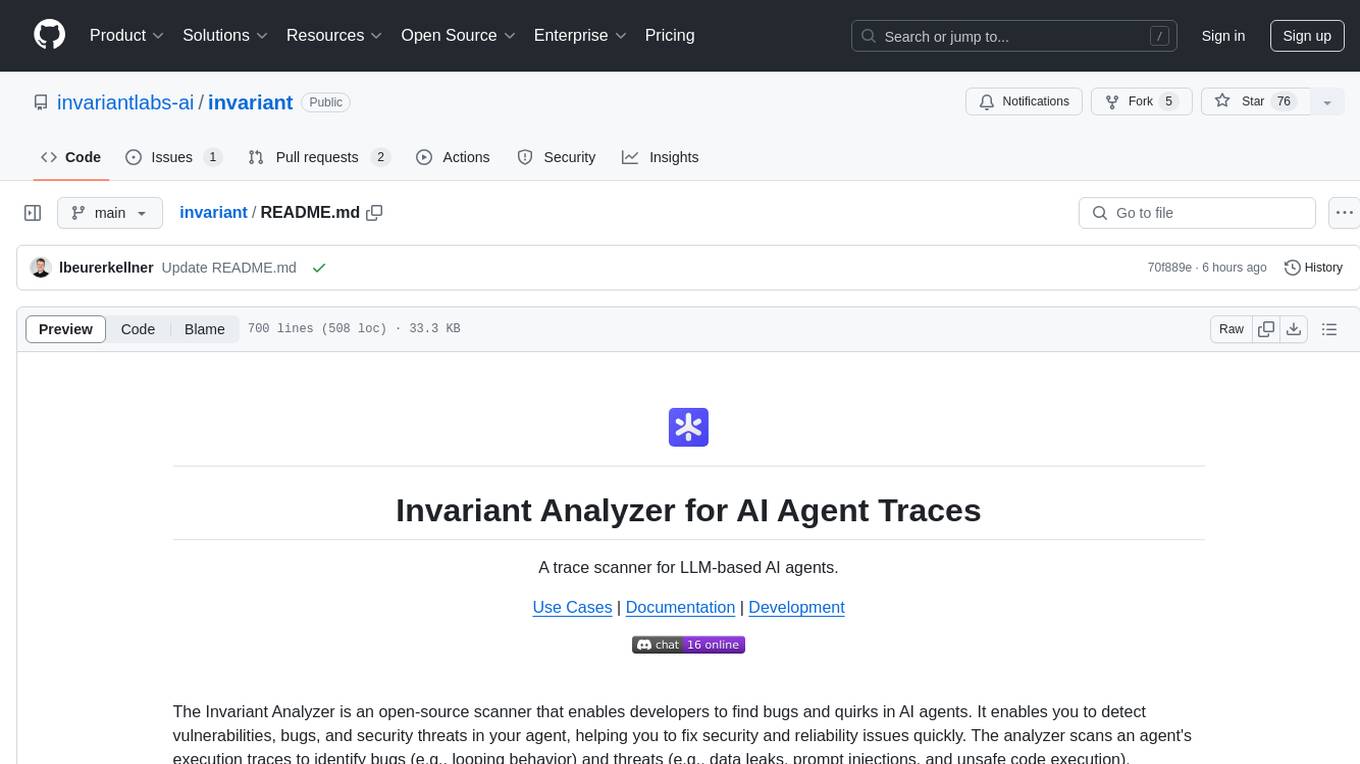
invariant
Invariant Analyzer is an open-source scanner designed for LLM-based AI agents to find bugs, vulnerabilities, and security threats. It scans agent execution traces to identify issues like looping behavior, data leaks, prompt injections, and unsafe code execution. The tool offers a library of built-in checkers, an expressive policy language, data flow analysis, real-time monitoring, and extensible architecture for custom checkers. It helps developers debug AI agents, scan for security violations, and prevent security issues and data breaches during runtime. The analyzer leverages deep contextual understanding and a purpose-built rule matching engine for security policy enforcement.
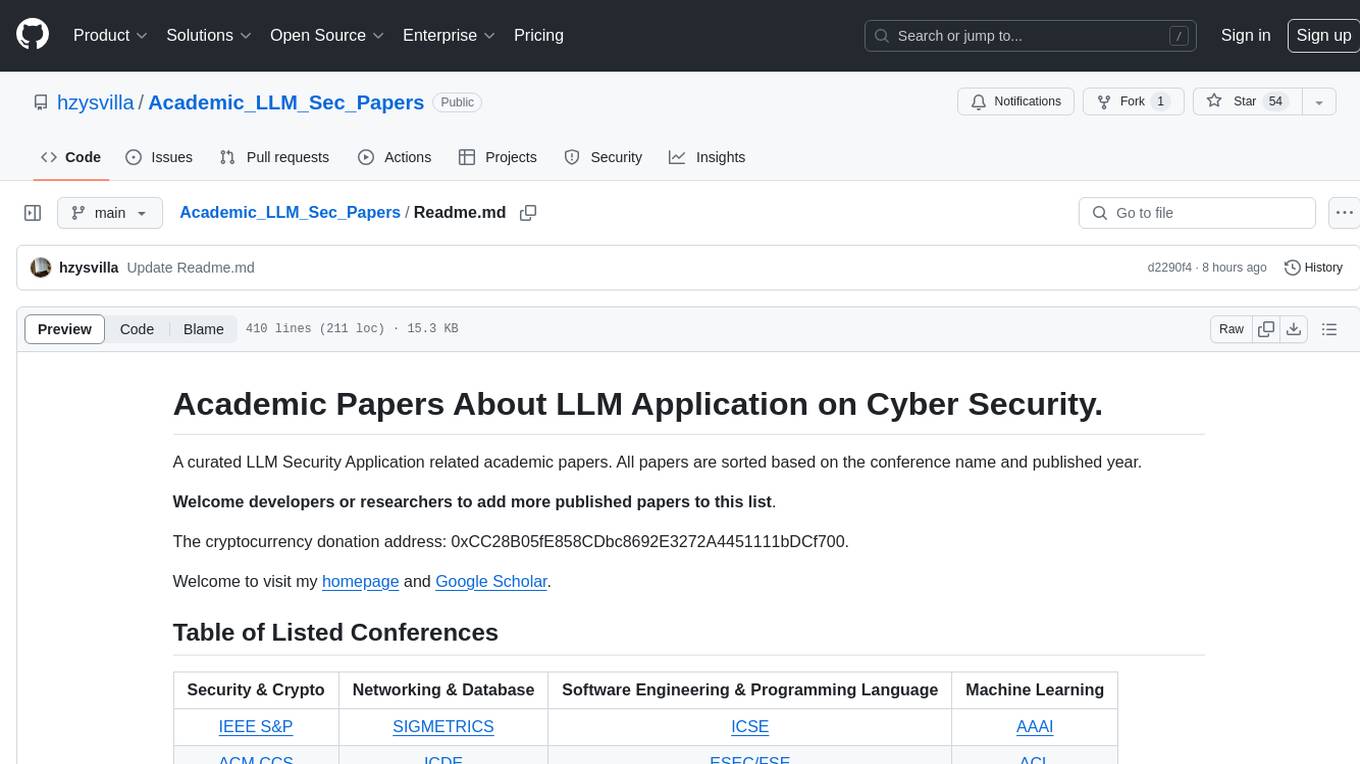
Academic_LLM_Sec_Papers
Academic_LLM_Sec_Papers is a curated collection of academic papers related to LLM Security Application. The repository includes papers sorted by conference name and published year, covering topics such as large language models for blockchain security, software engineering, machine learning, and more. Developers and researchers are welcome to contribute additional published papers to the list. The repository also provides information on listed conferences and journals related to security, networking, software engineering, and cryptography. The papers cover a wide range of topics including privacy risks, ethical concerns, vulnerabilities, threat modeling, code analysis, fuzzing, and more.
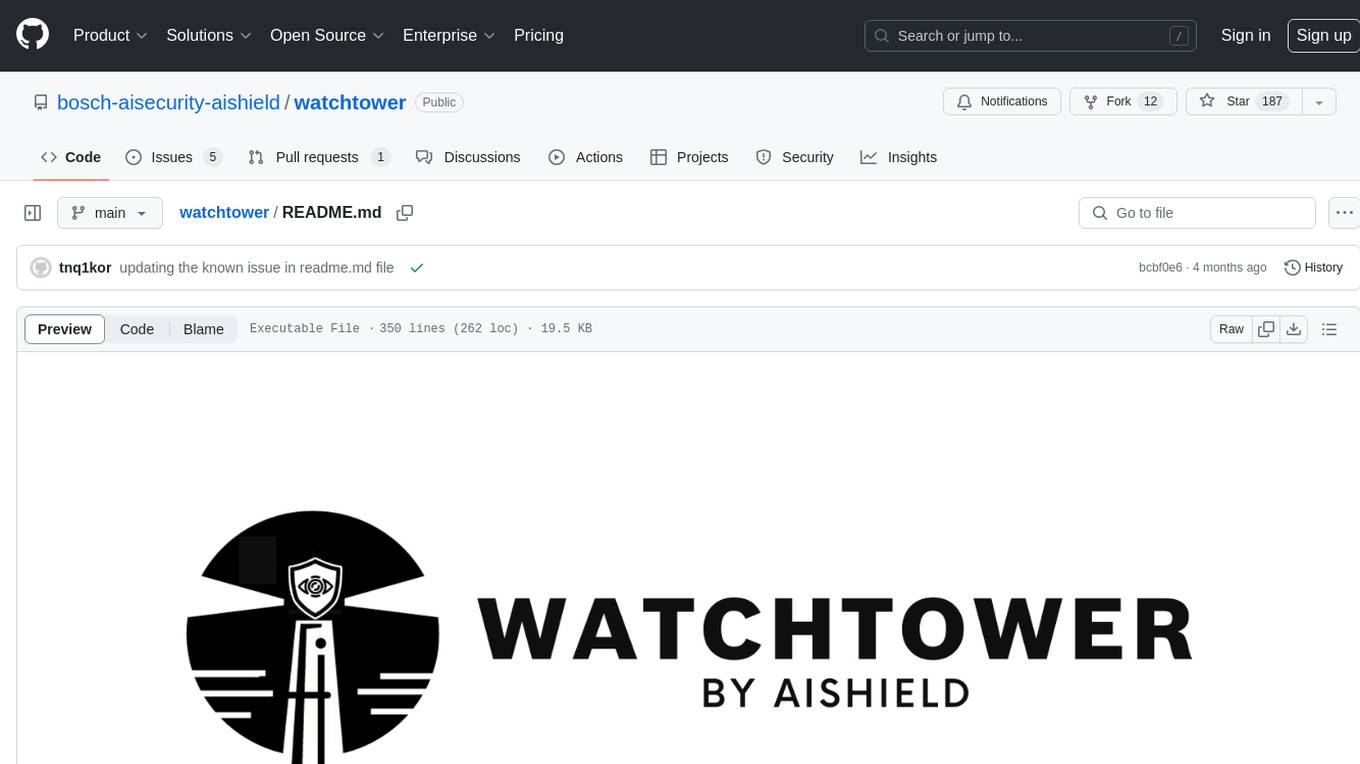
watchtower
AIShield Watchtower is a tool designed to fortify the security of AI/ML models and Jupyter notebooks by automating model and notebook discoveries, conducting vulnerability scans, and categorizing risks into 'low,' 'medium,' 'high,' and 'critical' levels. It supports scanning of public GitHub repositories, Hugging Face repositories, AWS S3 buckets, and local systems. The tool generates comprehensive reports, offers a user-friendly interface, and aligns with industry standards like OWASP, MITRE, and CWE. It aims to address the security blind spots surrounding Jupyter notebooks and AI models, providing organizations with a tailored approach to enhancing their security efforts.
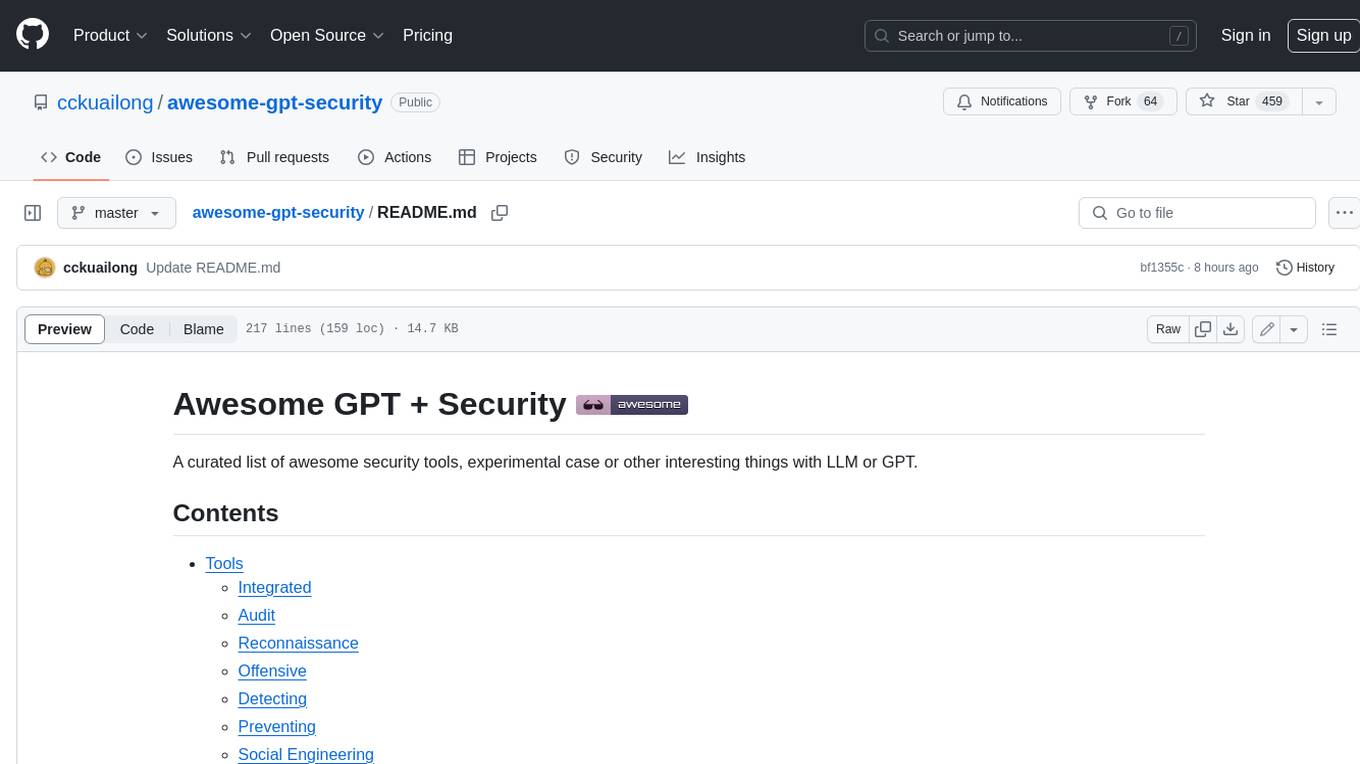
awesome-gpt-security
Awesome GPT + Security is a curated list of awesome security tools, experimental case or other interesting things with LLM or GPT. It includes tools for integrated security, auditing, reconnaissance, offensive security, detecting security issues, preventing security breaches, social engineering, reverse engineering, investigating security incidents, fixing security vulnerabilities, assessing security posture, and more. The list also includes experimental cases, academic research, blogs, and fun projects related to GPT security. Additionally, it provides resources on GPT security standards, bypassing security policies, bug bounty programs, cracking GPT APIs, and plugin security.
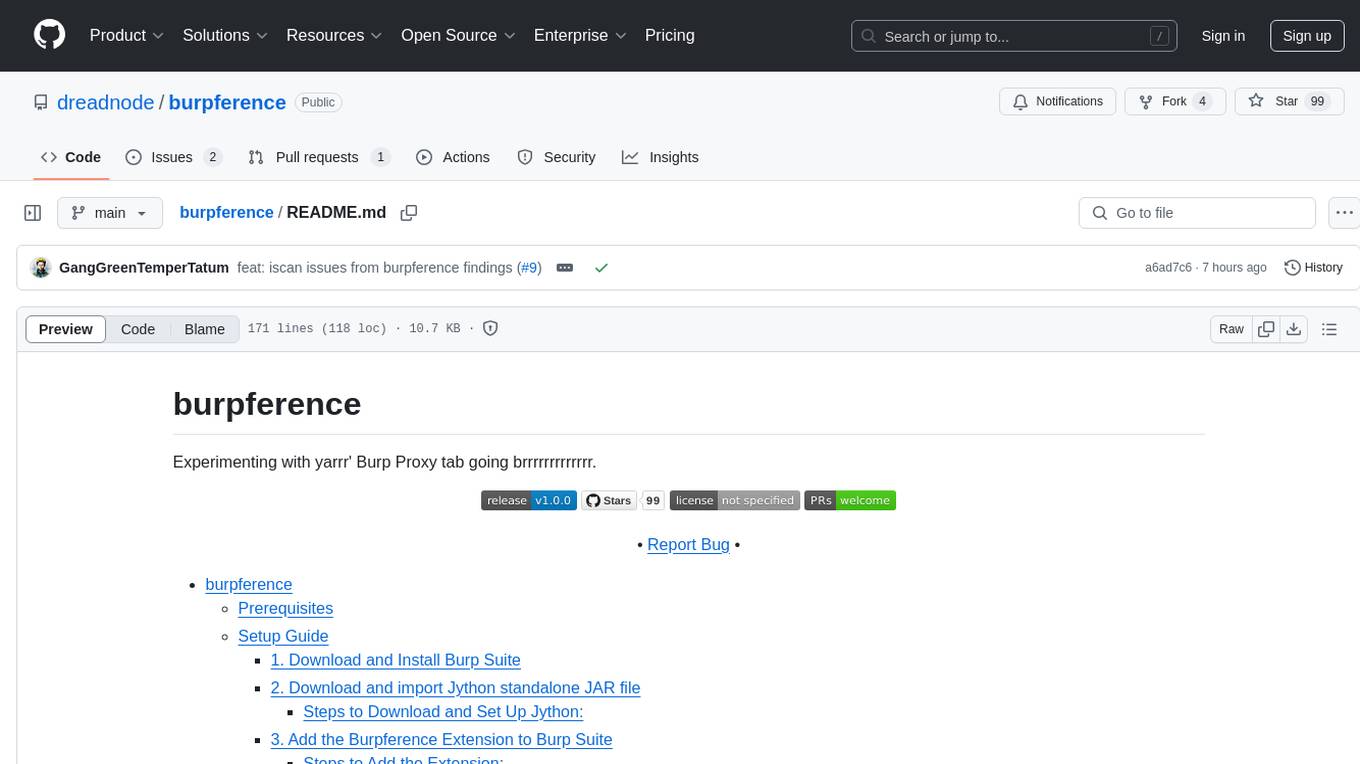
burpference
Burpference is an open-source extension designed to capture in-scope HTTP requests and responses from Burp's proxy history and send them to a remote LLM API in JSON format. It automates response capture, integrates with APIs, optimizes resource usage, provides color-coded findings visualization, offers comprehensive logging, supports native Burp reporting, and allows flexible configuration. Users can customize system prompts, API keys, and remote hosts, and host models locally to prevent high inference costs. The tool is ideal for offensive web application engagements to surface findings and vulnerabilities.
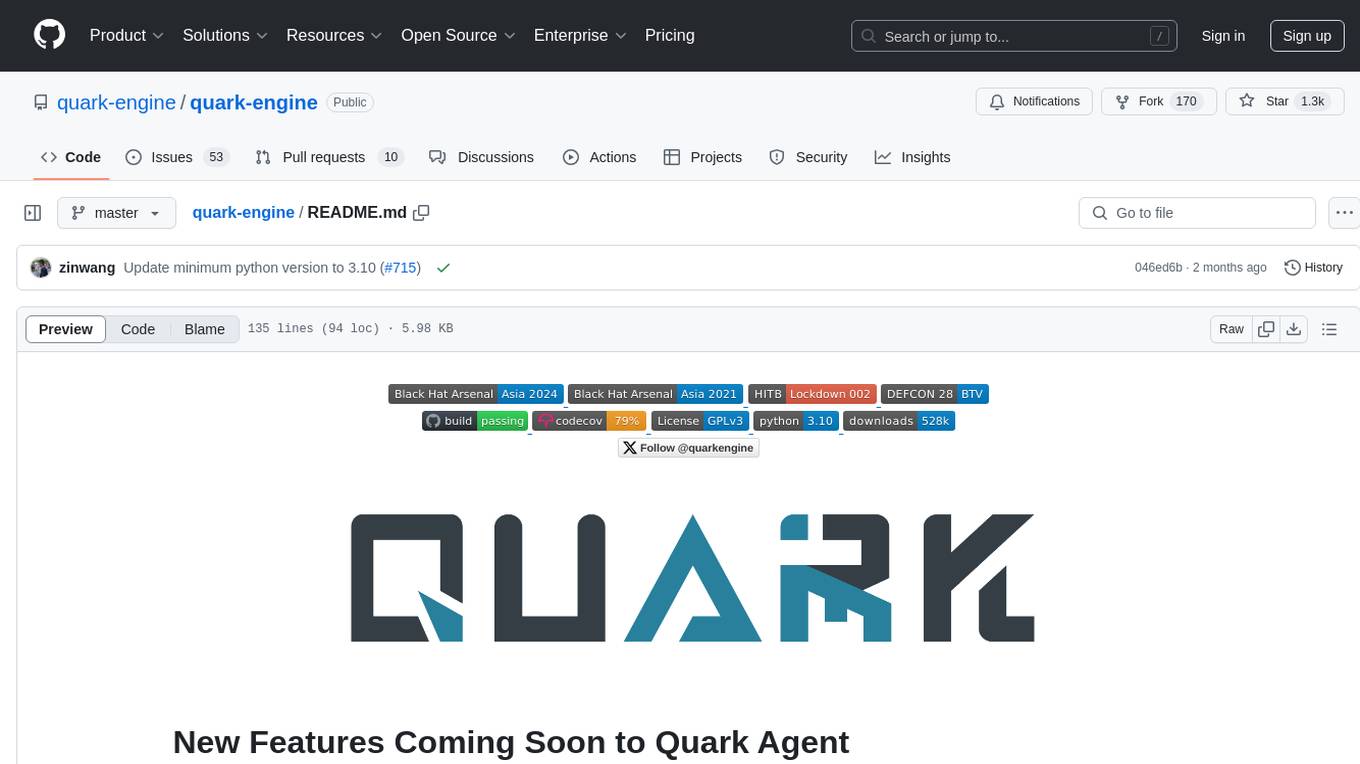
quark-engine
Quark Engine is an AI-powered tool designed for analyzing Android APK files. It focuses on enhancing the detection process for auto-suggestion, enabling users to create detection workflows without coding. The tool offers an intuitive drag-and-drop interface for workflow adjustments and updates. Quark Agent, the core component, generates Quark Script code based on natural language input and feedback. The project is committed to providing a user-friendly experience for designing detection workflows through textual and visual methods. Various features are still under development and will be rolled out gradually.
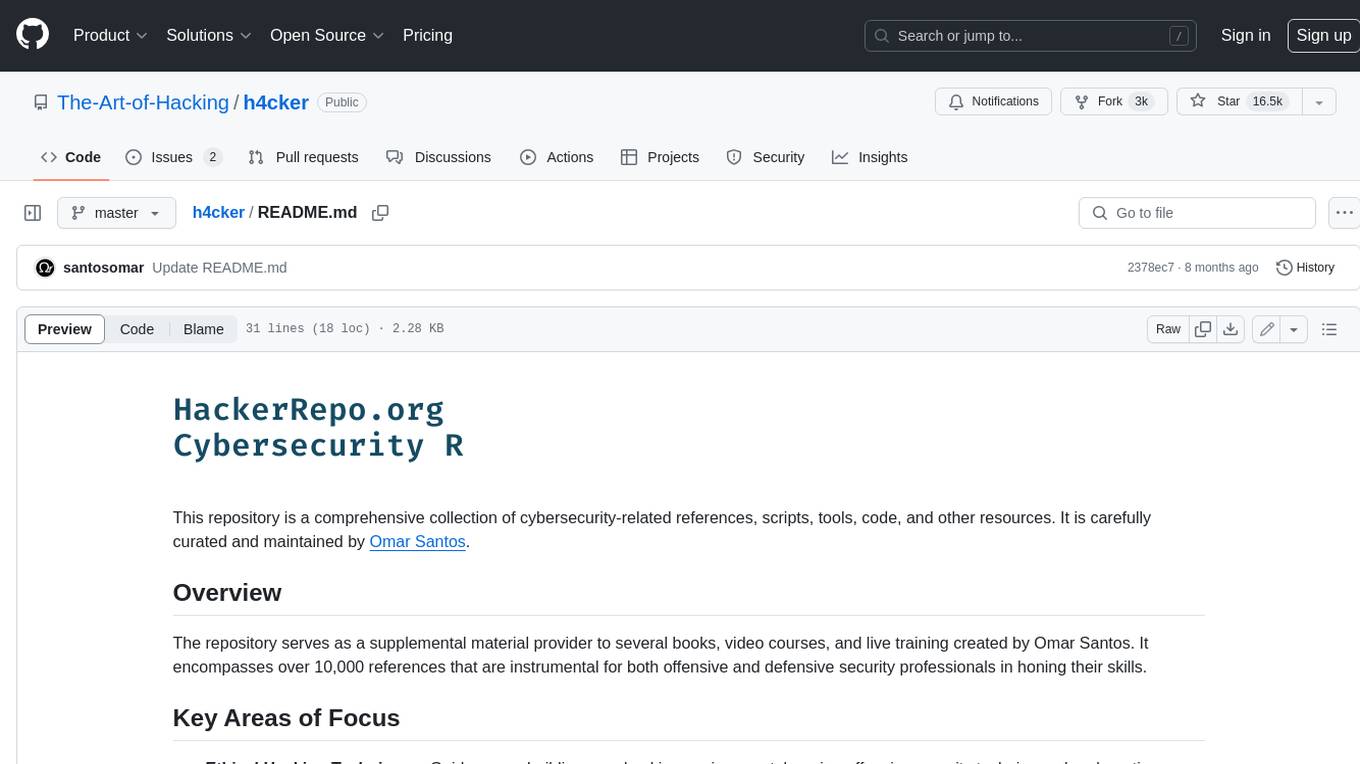
h4cker
This repository is a comprehensive collection of cybersecurity-related references, scripts, tools, code, and other resources. It is carefully curated and maintained by Omar Santos. The repository serves as a supplemental material provider to several books, video courses, and live training created by Omar Santos. It encompasses over 10,000 references that are instrumental for both offensive and defensive security professionals in honing their skills.
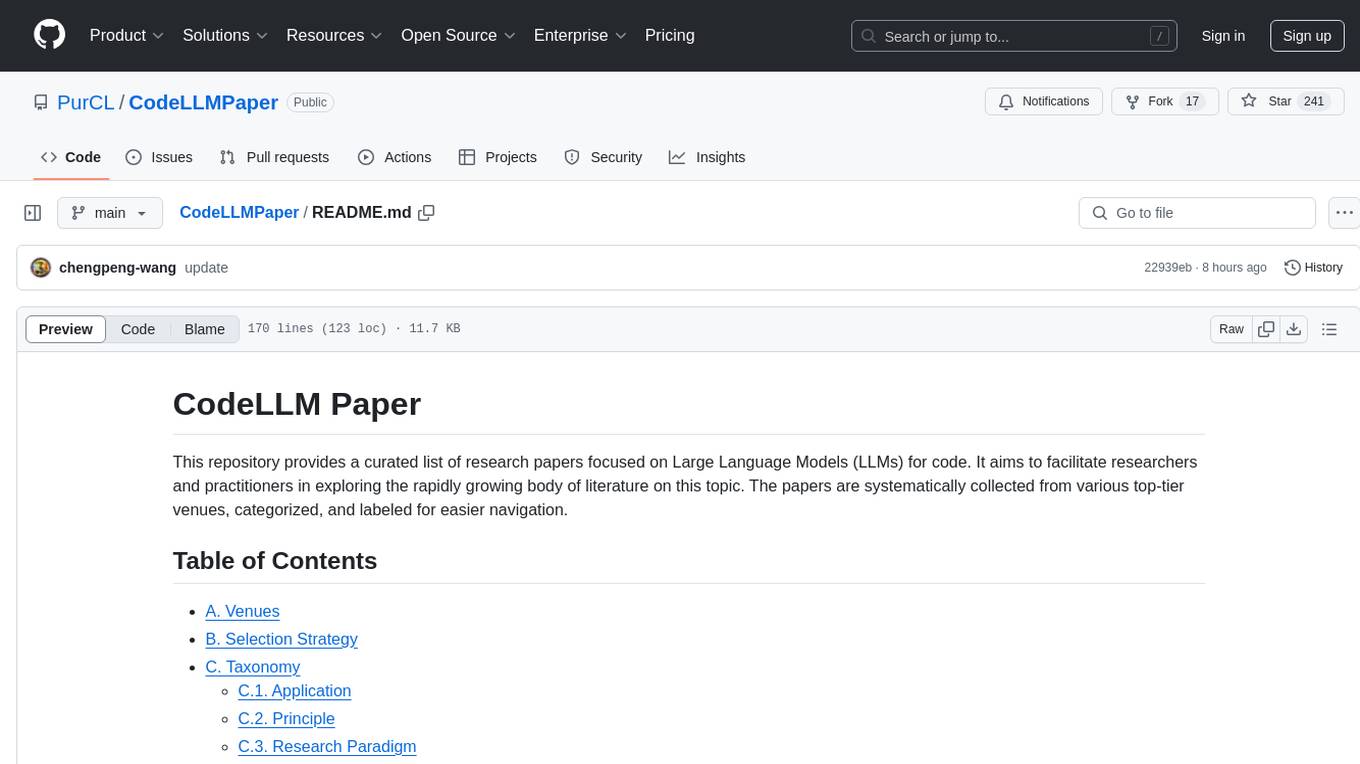
CodeLLMPaper
CodeLLM Paper repository provides a curated list of research papers focused on Large Language Models (LLMs) for code. It aims to facilitate researchers and practitioners in exploring the rapidly growing body of literature on this topic. The papers are systematically collected from various top-tier venues, categorized, and labeled for easier navigation. The selection strategy involves abstract extraction, keyword matching, relevance check using LLMs, and manual labeling. The papers are categorized based on Application, Principle, and Research Paradigm dimensions. Contributions to expand the repository are welcome through PR submission, issue submission, or request for batch updates. The repository is intended solely for research purposes, with raw data sourced from publicly available information on ACM, IEEE, and corresponding conference websites.
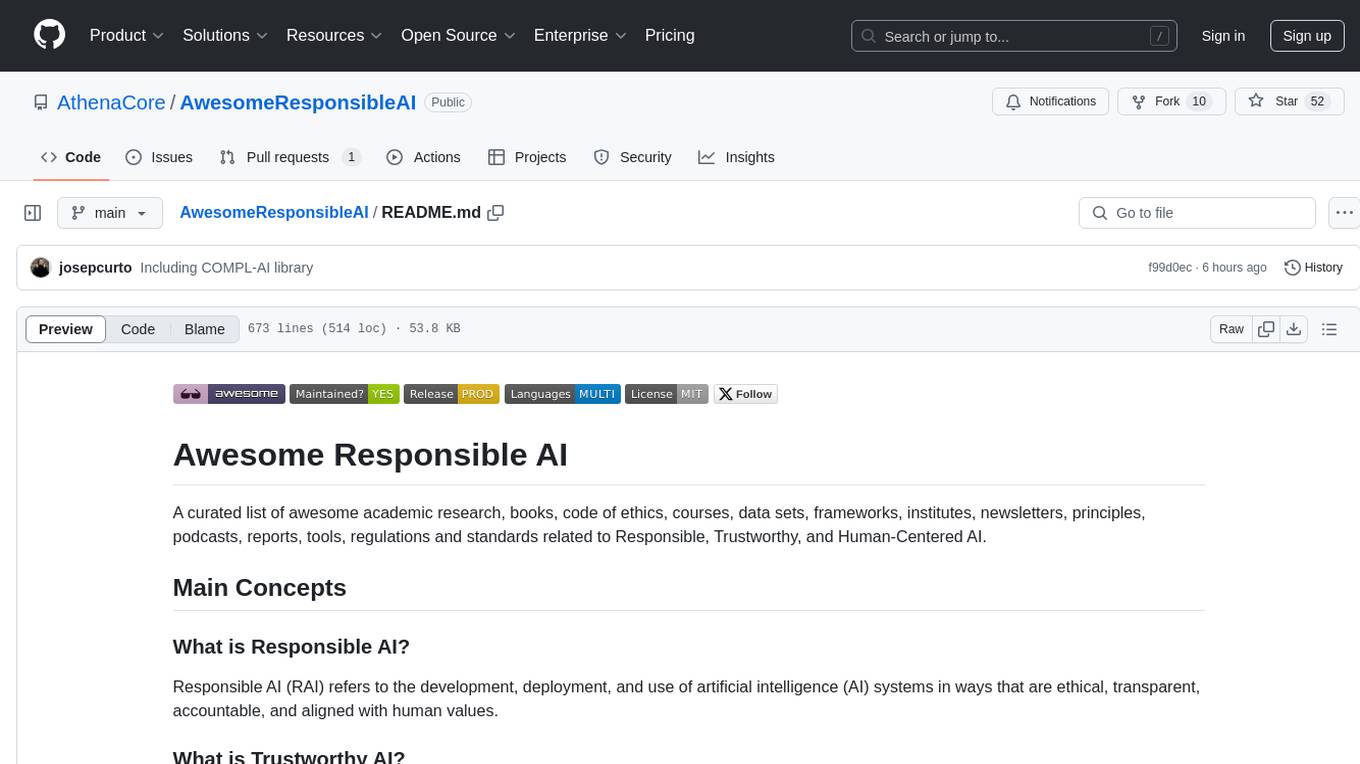
AwesomeResponsibleAI
Awesome Responsible AI is a curated list of academic research, books, code of ethics, courses, data sets, frameworks, institutes, newsletters, principles, podcasts, reports, tools, regulations, and standards related to Responsible, Trustworthy, and Human-Centered AI. It covers various concepts such as Responsible AI, Trustworthy AI, Human-Centered AI, Responsible AI frameworks, AI Governance, and more. The repository provides a comprehensive collection of resources for individuals interested in ethical, transparent, and accountable AI development and deployment.
20 - OpenAI Gpts

🛡️ CodeGuardian Pro+ 🛡️
Your AI-powered sentinel for code! Scans for vulnerabilities, offers security tips, and educates on best practices in cybersecurity. 🔍🔐

Solidity Sage
Your personal Ethereum magician — Simply ask a question or provide a code sample for insights into vulnerabilities, gas optimizations, and best practices. Don't be shy to ask about tooling and legendary attacks.
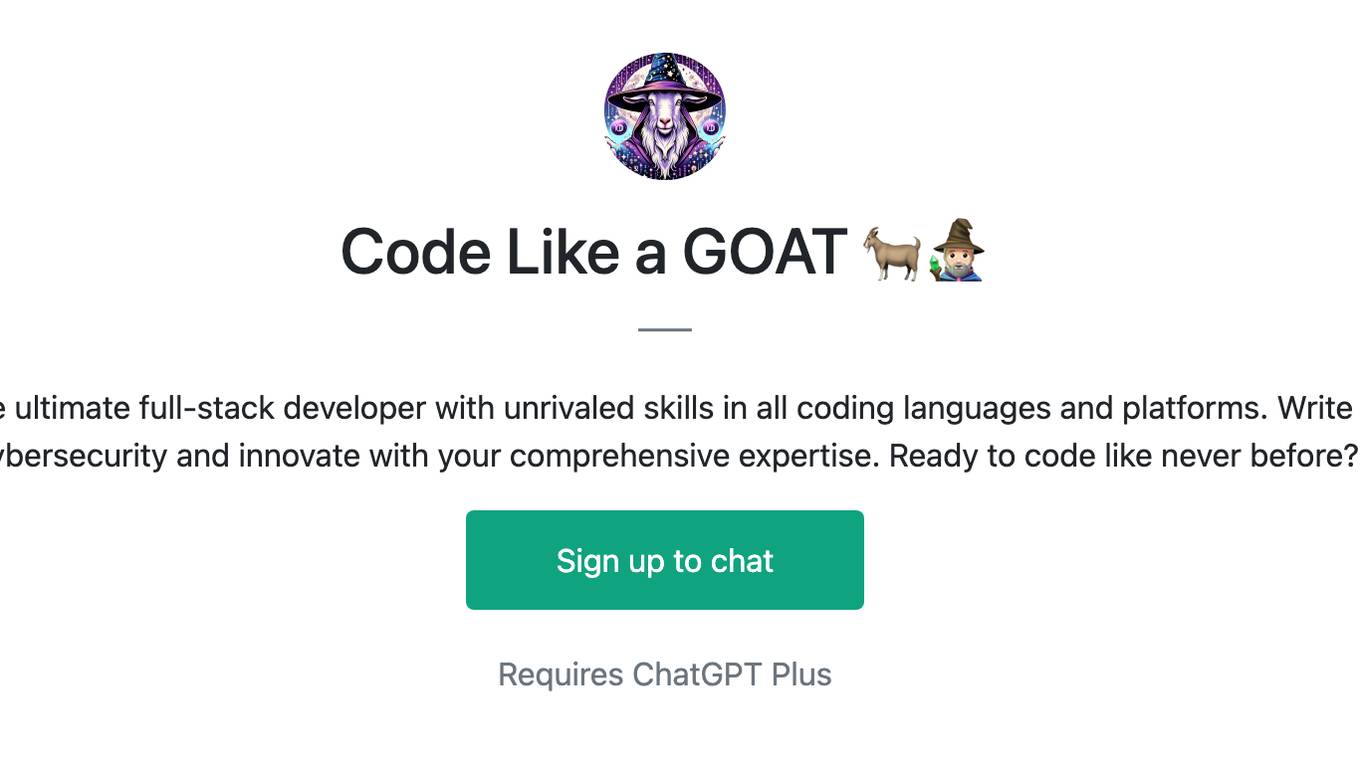
Code Like a GOAT 🐐🧙🏻♂️
Unleash Your Inner GOAT in Coding! Be the ultimate full-stack developer with unrivaled skills in all coding languages and platforms. Write elegant, secure code, and more. Excel in cybersecurity and innovate with your comprehensive expertise. Ready to code like never before?

Code Mentor
A code review bot that offers insightful advice based on NextJs Documentation.
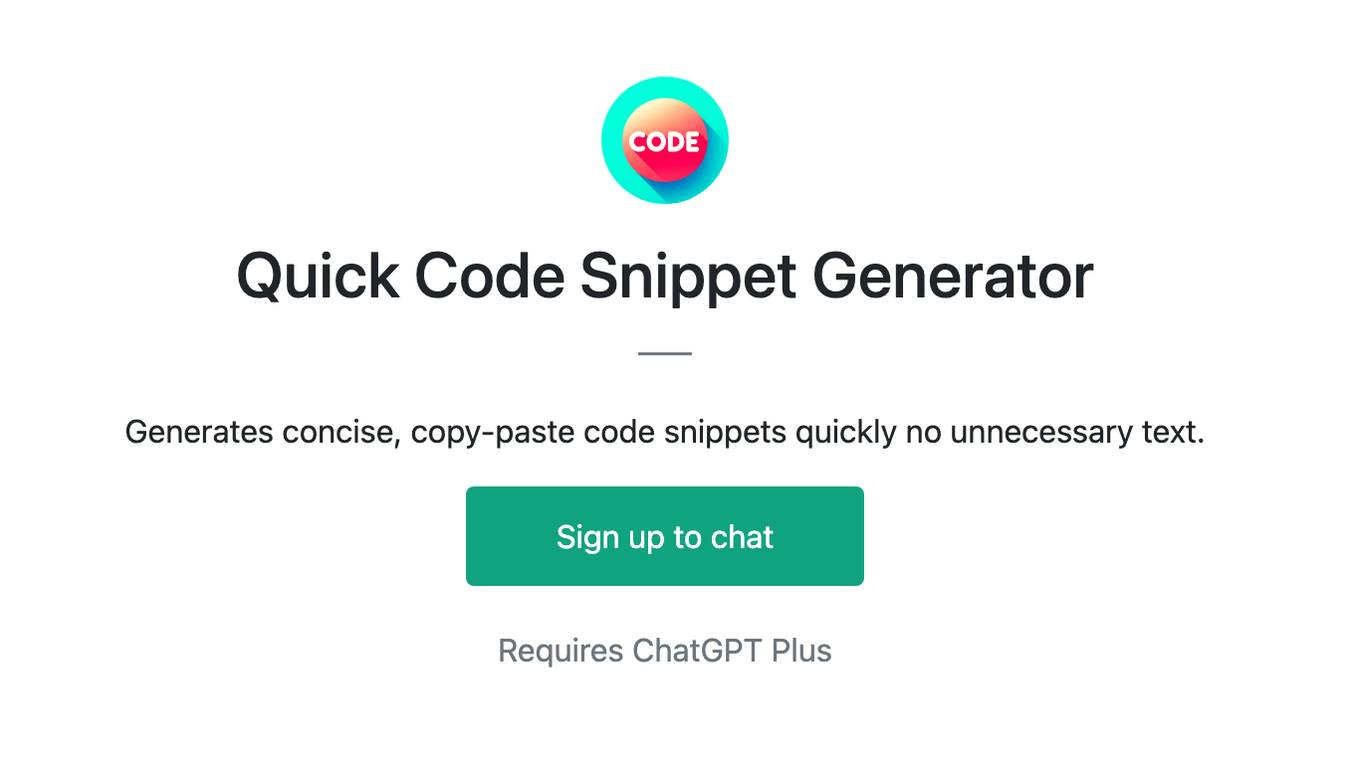
Quick Code Snippet Generator
Generates concise, copy-paste code snippets quickly no unnecessary text.

